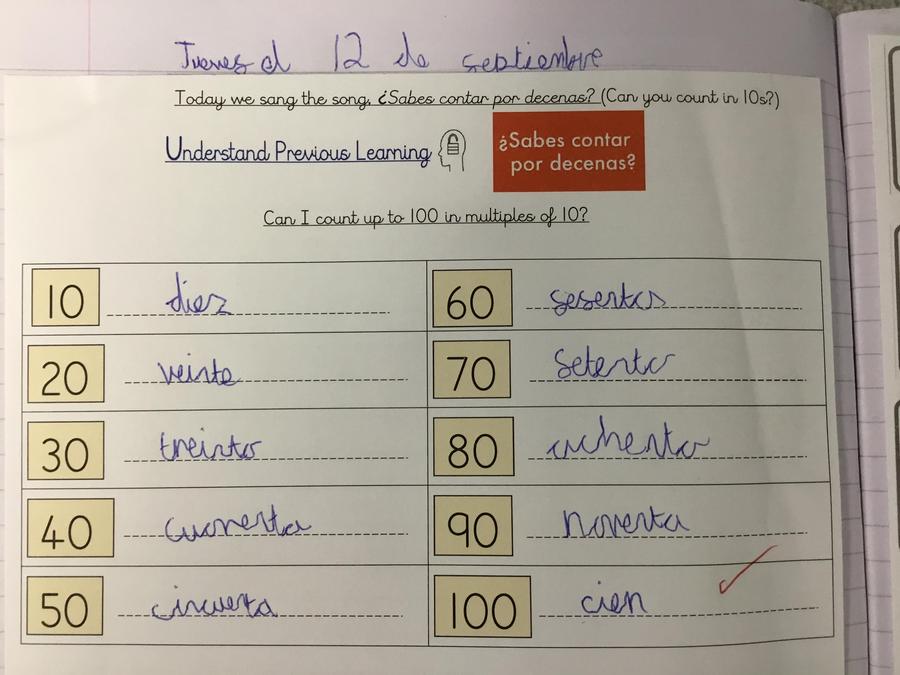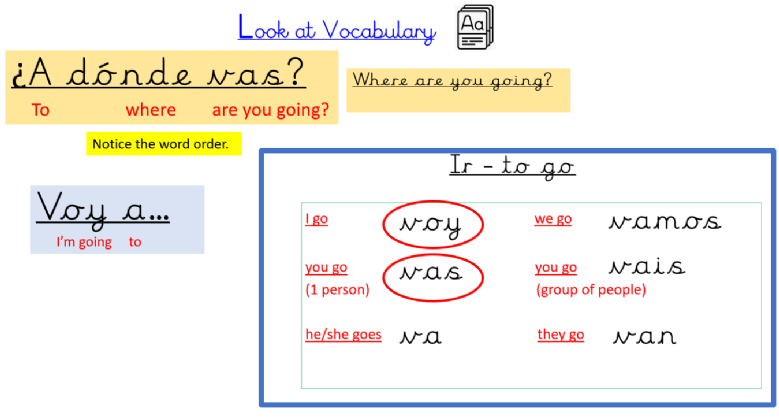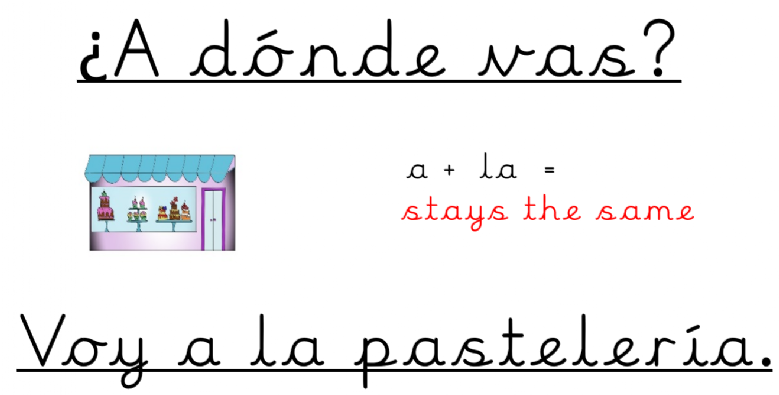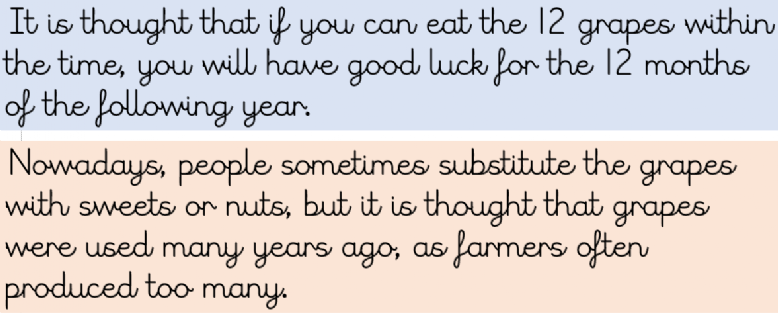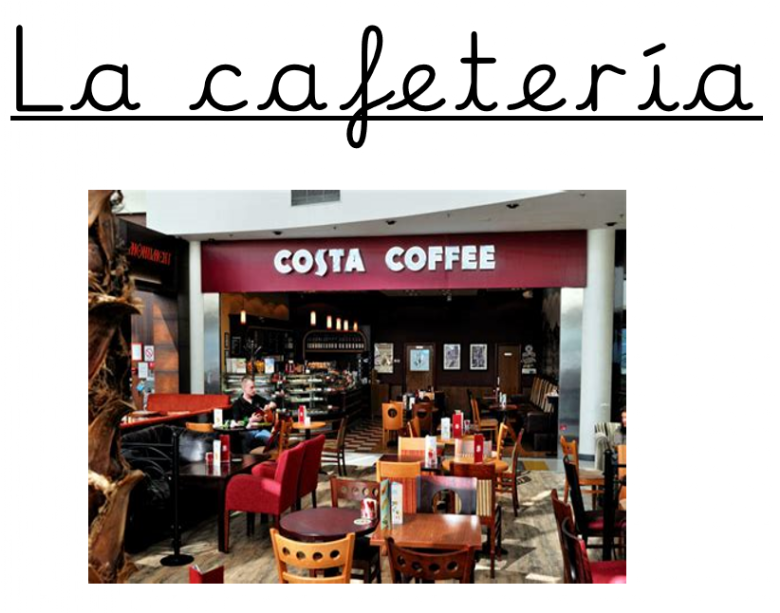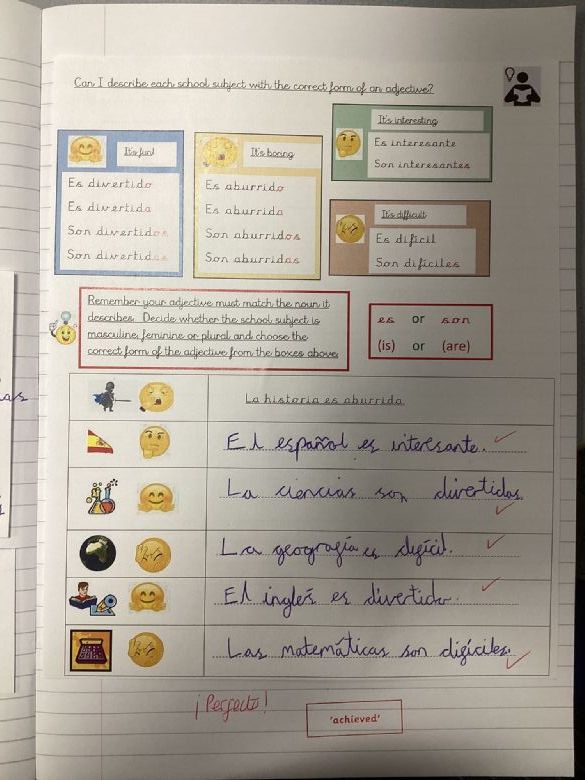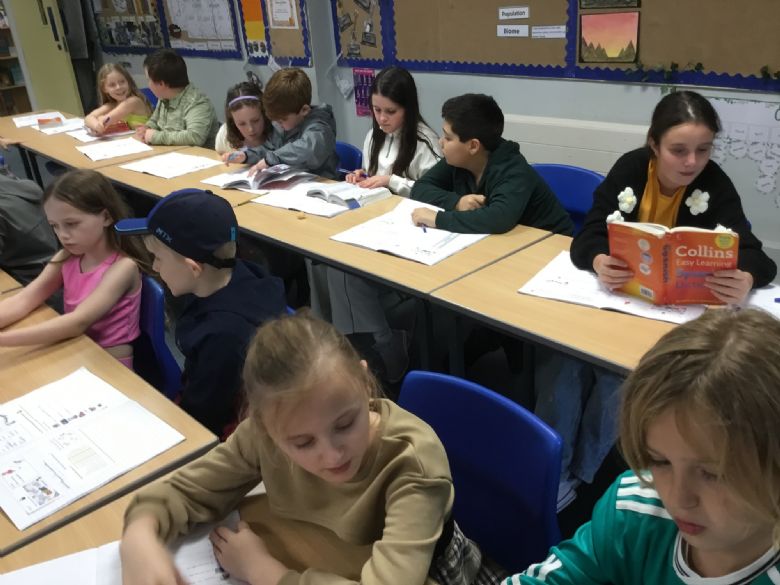Year 5
2025 - 2026
Spring 1
The City
11.2.26
This week we worked on a new question and answer.
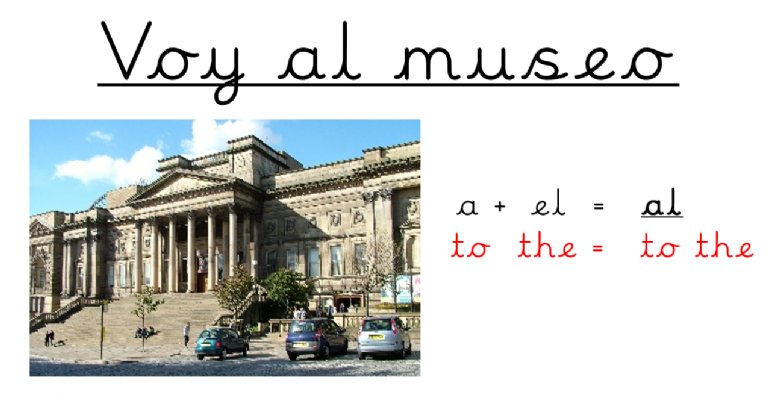
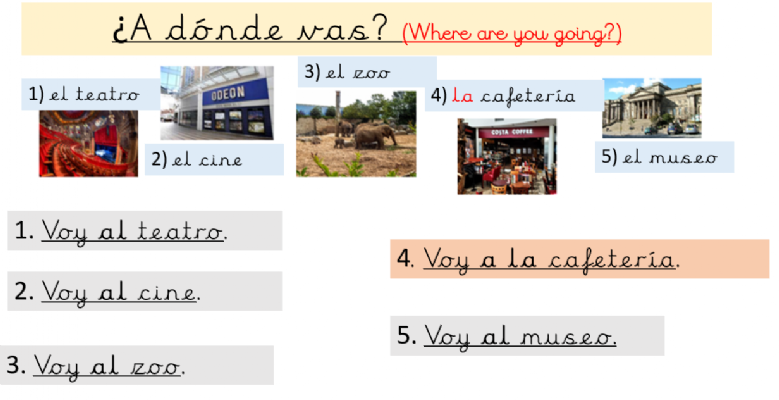
4.2.26
Today we have discovered that the Spanish people have 2 different words for this. One is for masculine nouns and one is for feminine nouns.
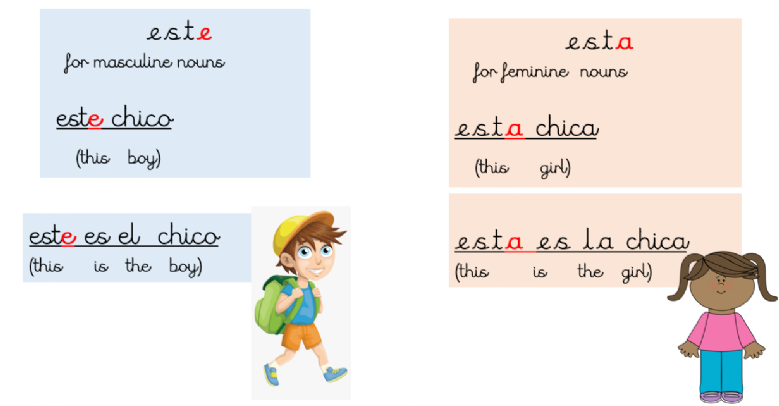
28.1.26
This week, we have been reading a story about a Spanish robot called Zog who is looking for the cake shop.
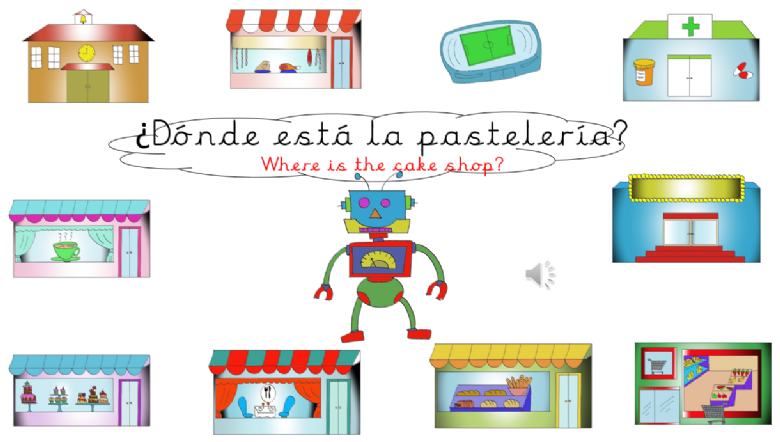
The story used some simple directions in Spanish to help him.


21.1.26
Today, we learnt about a strange tradition in Spain on New Year's Eve.
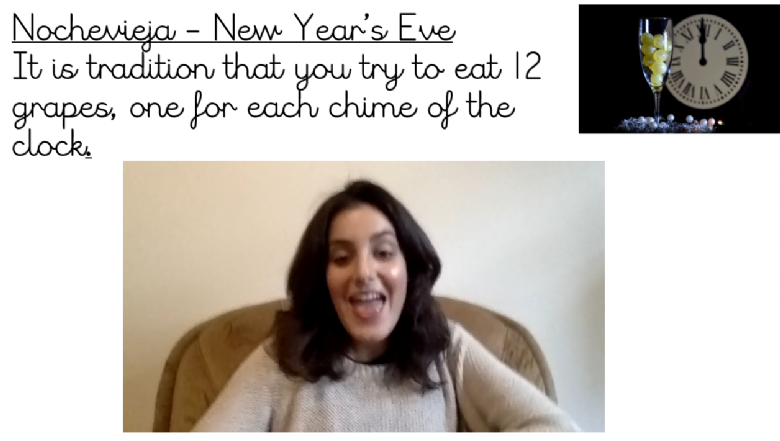
We also started our new topic about the city, and looked at some words that are similar or the same in English and Spanish.
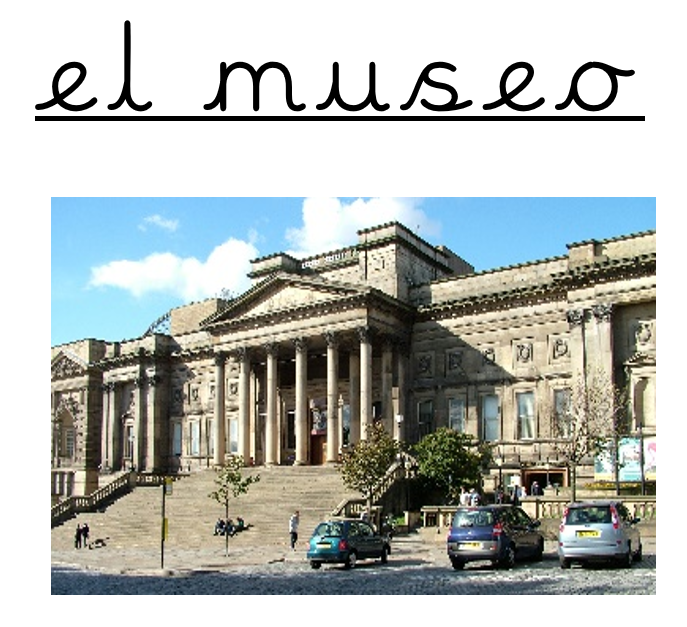
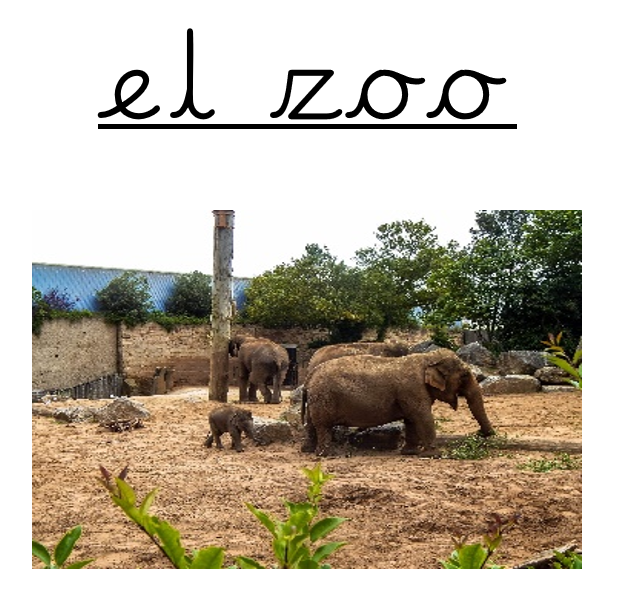
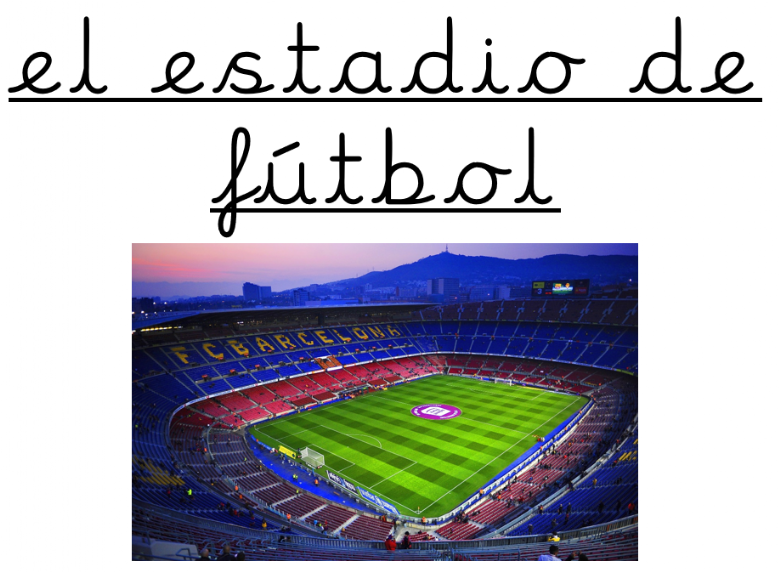

Autumn 2
Las asignaturas
School Subjects
7.1.26
Today, we have been building longer sentences about school subjects, giving reasons for our opinions of them. We used a sentence builder to help us put together all the vocabulary and phrases we have learnt so far.
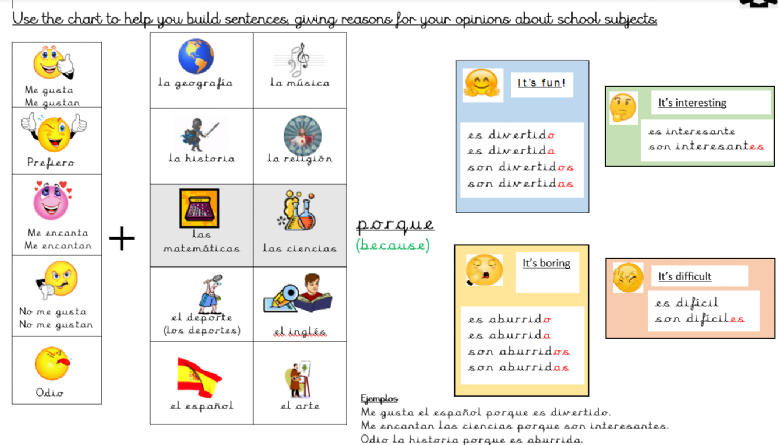
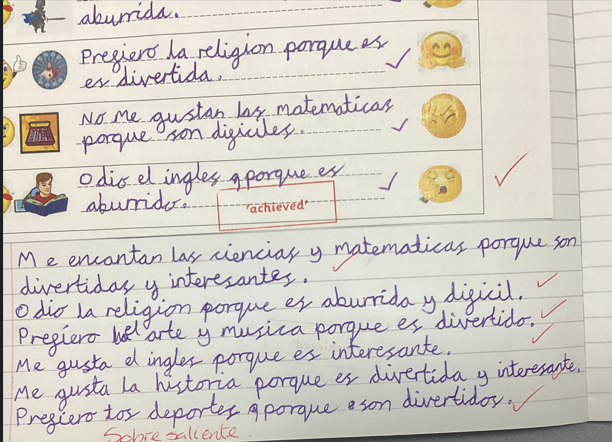
16.12.25
Today, we have been learning some phrases to help us give our opinions about different school subjects.
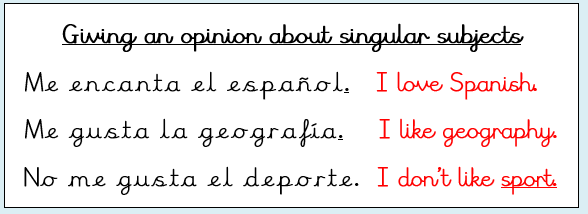

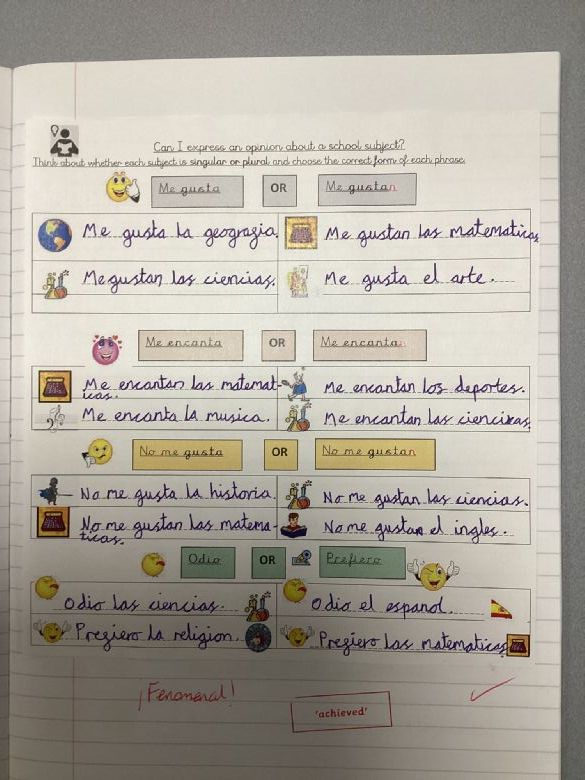
We also learnt some adjectives to describe the school subjects. In Spanish, the ends of the adjectives change to match the noun, depending on whether it is masculine, feminine or plural.
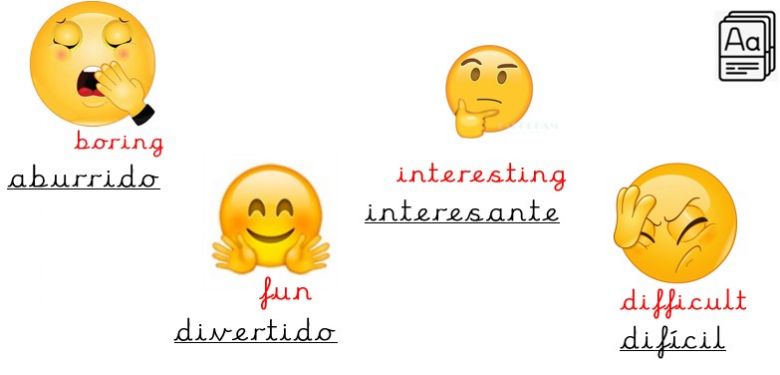
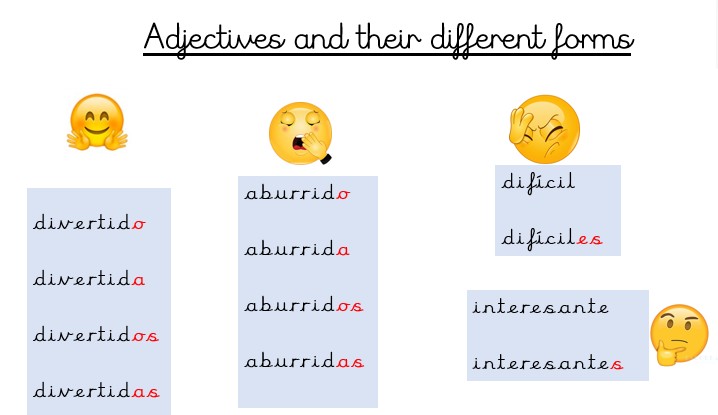
10.12.25
This week, we have been learning how to say when we have different lessons, using the day and the time. We used a sentence builder to help us.
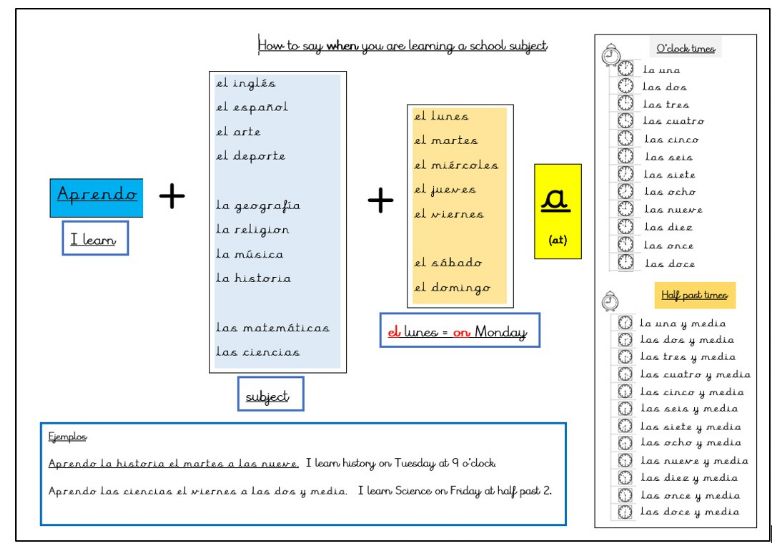
I am learning sport on Wednesday at half past 7.
I 3.12.25
Today, we learned how to ask and tell each other what we are learning.
We played Quiz Quiz Trade to practise the question and different answers.
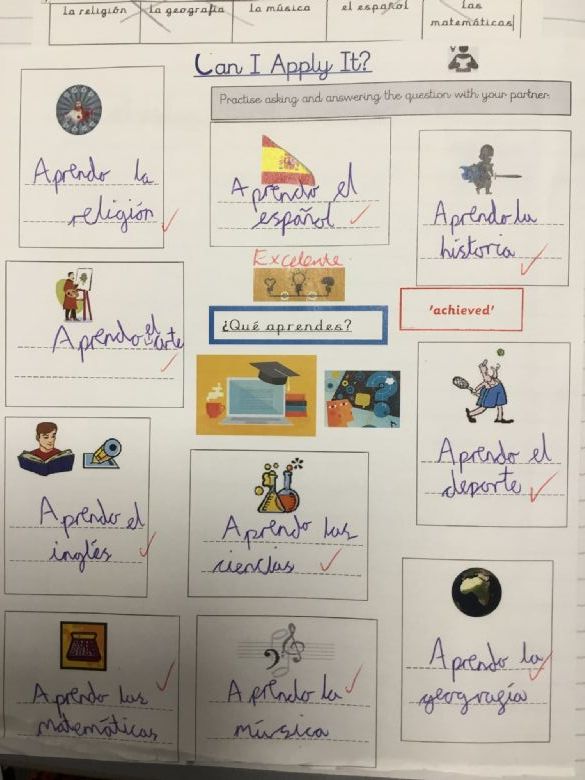
19.11.25
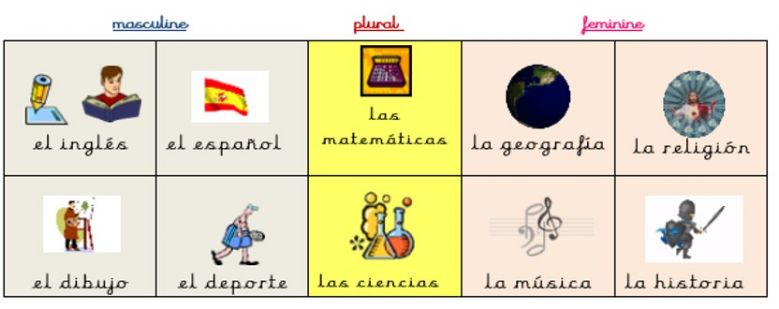
This week, we started to learn the names of school subjects in Spanish. A lot of them are cognates because they are very similar to English words. We sorted the subjects into masculine, feminine and plural groups.
Jungle Animals
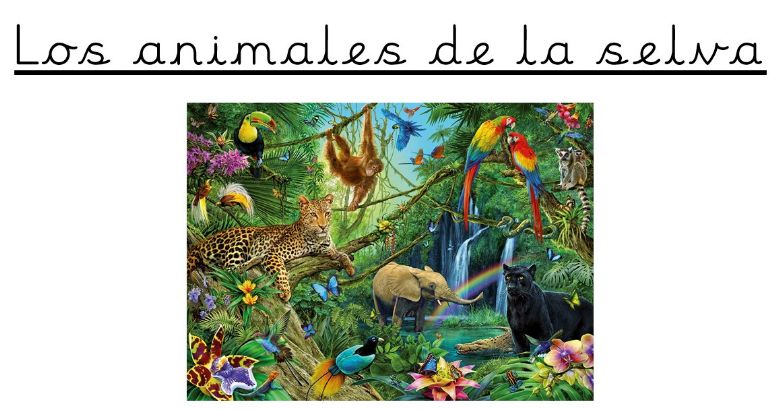
10.11.25
Today we looked for a wider range of adjectives in the bilingual dictionary to describe our animals with.

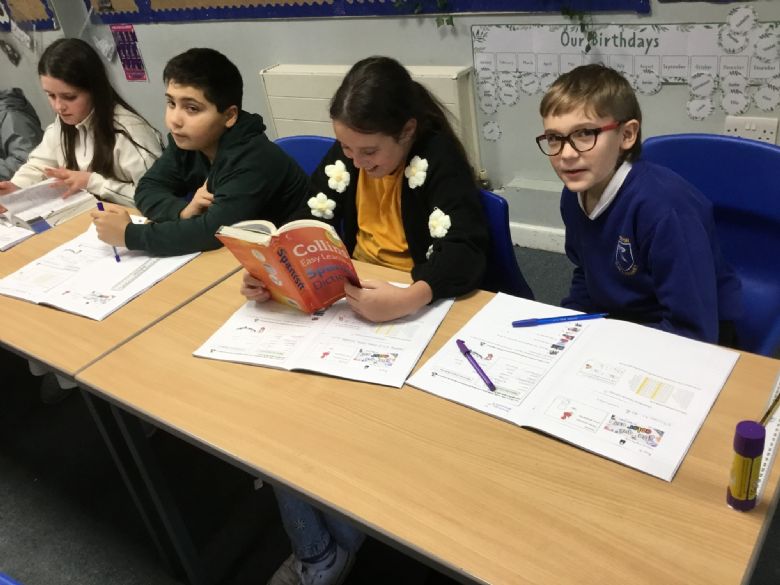
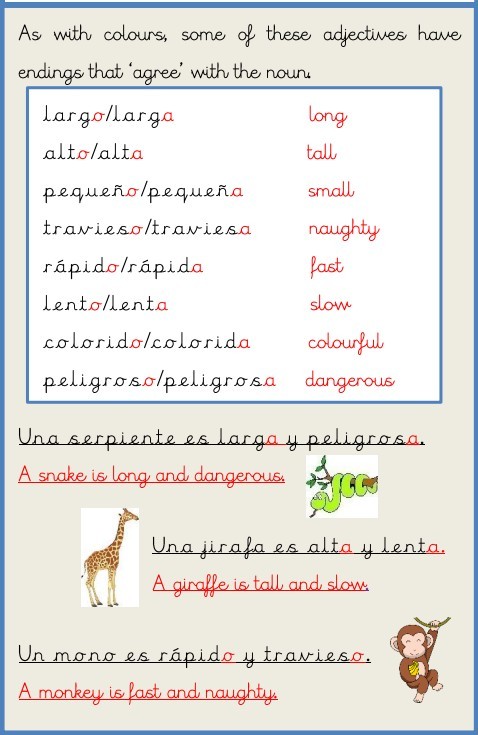
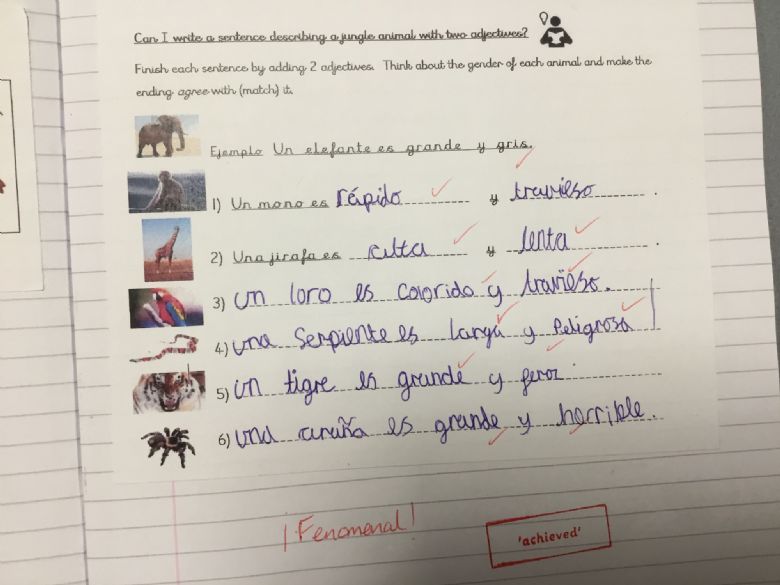
5.11.25
This half term we are learning how to describe jungle animals in Spanish. We began by describing them with colours.
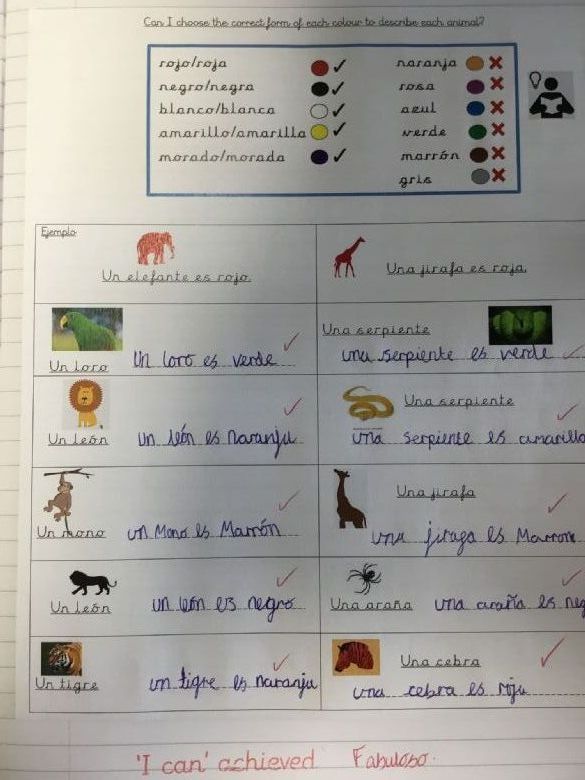
Autumn 1
Welcome to the Year 5 Spanish blog for 2025 -2026. The children have made a great start this year, learning to count from 30 to 100 in Spanish.
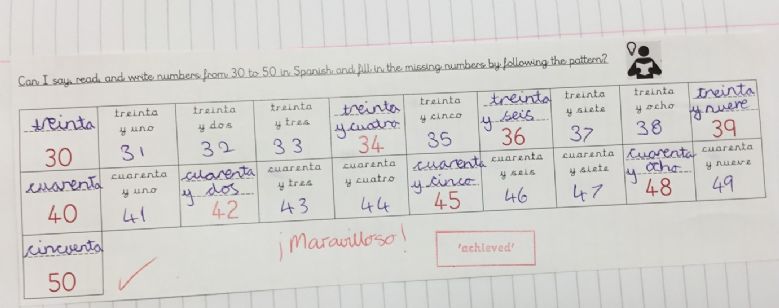

We also practised counting in multiples of 10, and sang a song to help us remember them.
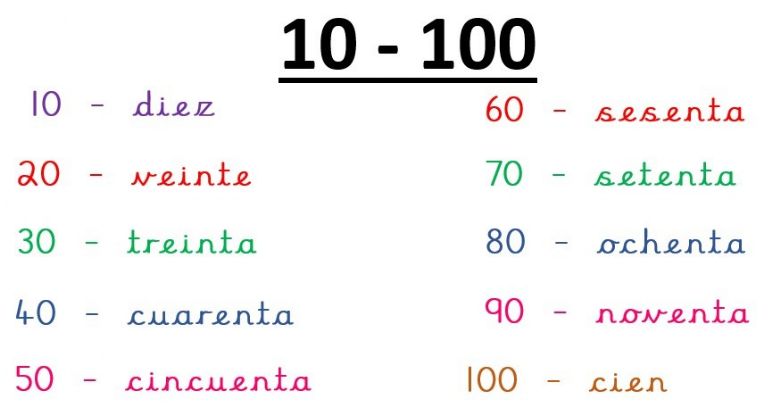
We have also been learning to tell the time to half past the hour in Spanish.
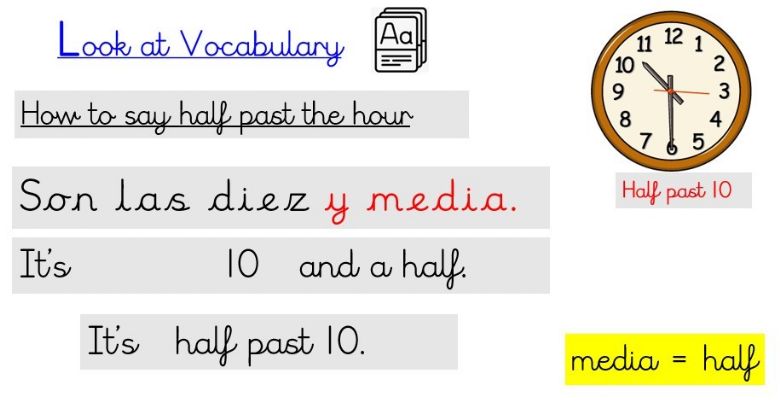
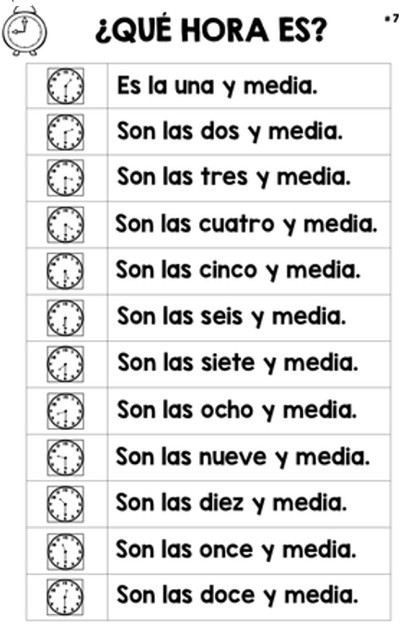
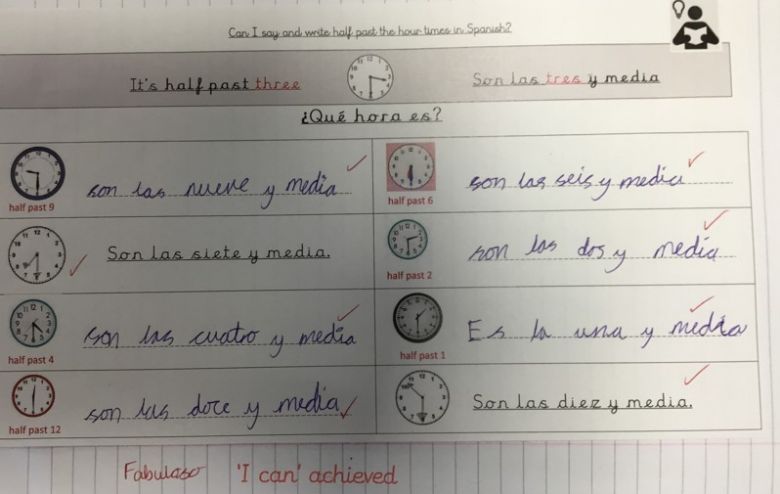
2024 - 2025
Summer 2
26.6.26
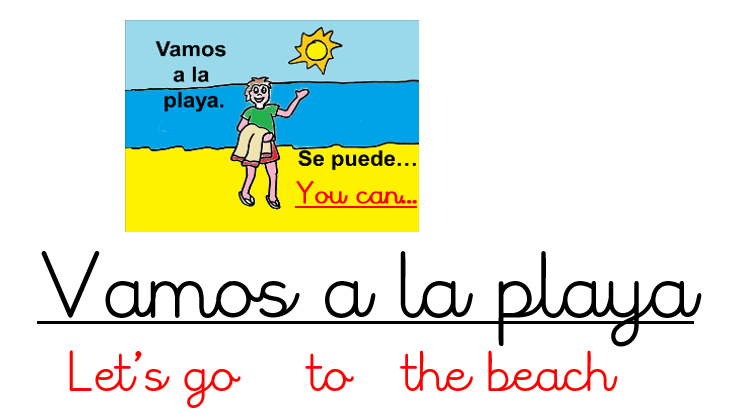
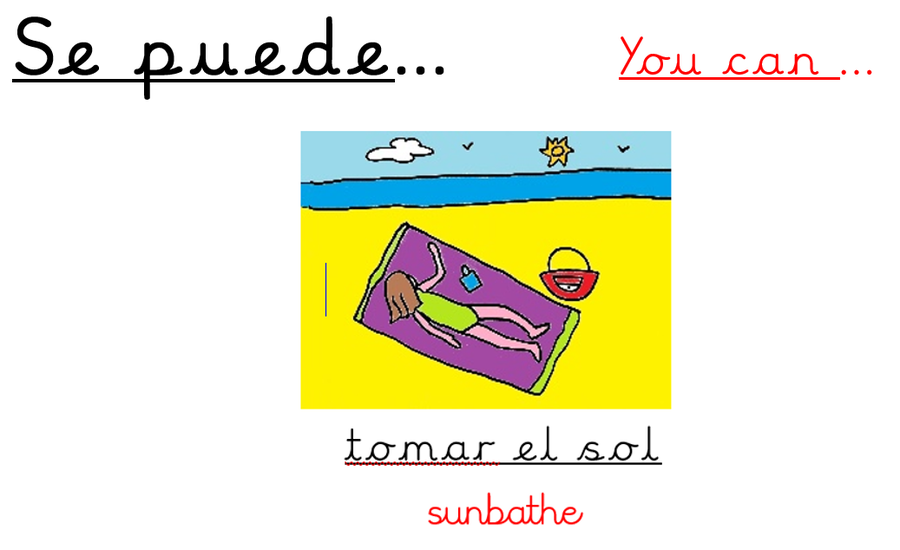
This week, we created posters describing the activities you can do at the beach.
year-5
19.6.25
This week, we have been learning how to say different modes of transport in Spanish.
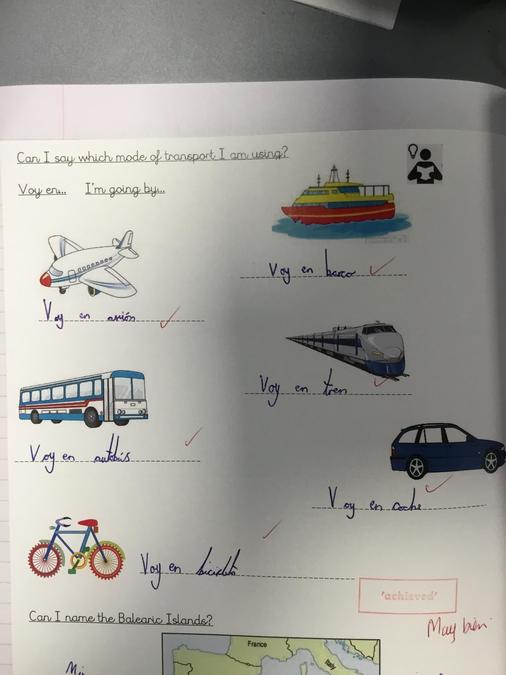
12.6.25
Today, we have been learning some beach vocabulary. We played the memory game En mi bolsa de playa hay...
(In my beach bag there is...).
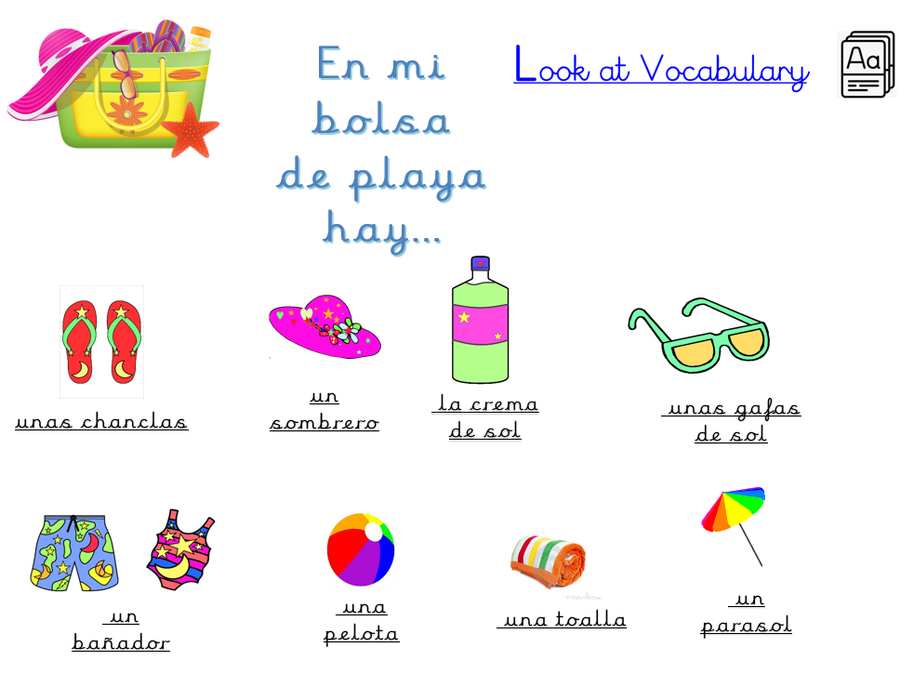
Three of the words had something in common.
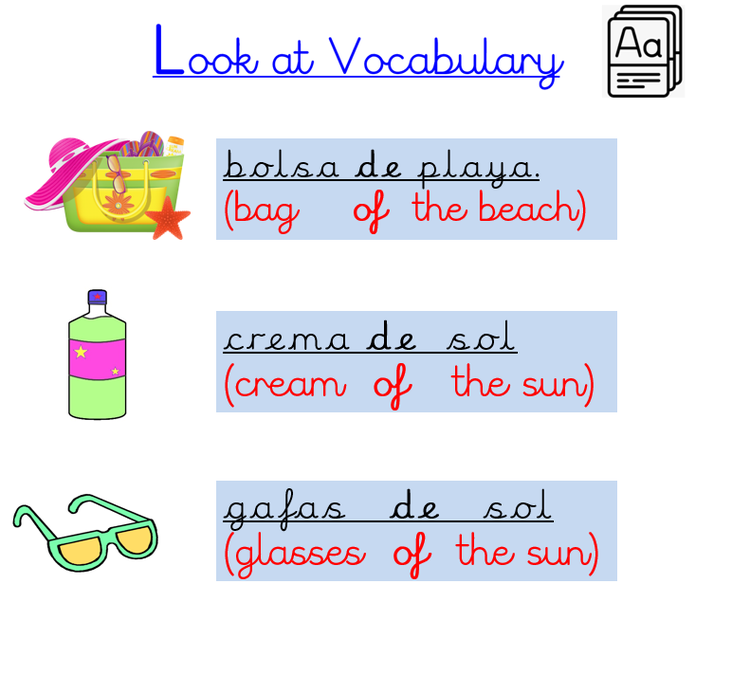
We made our own beach bags, and found more beach vocabulary in the bilingual dictionary.
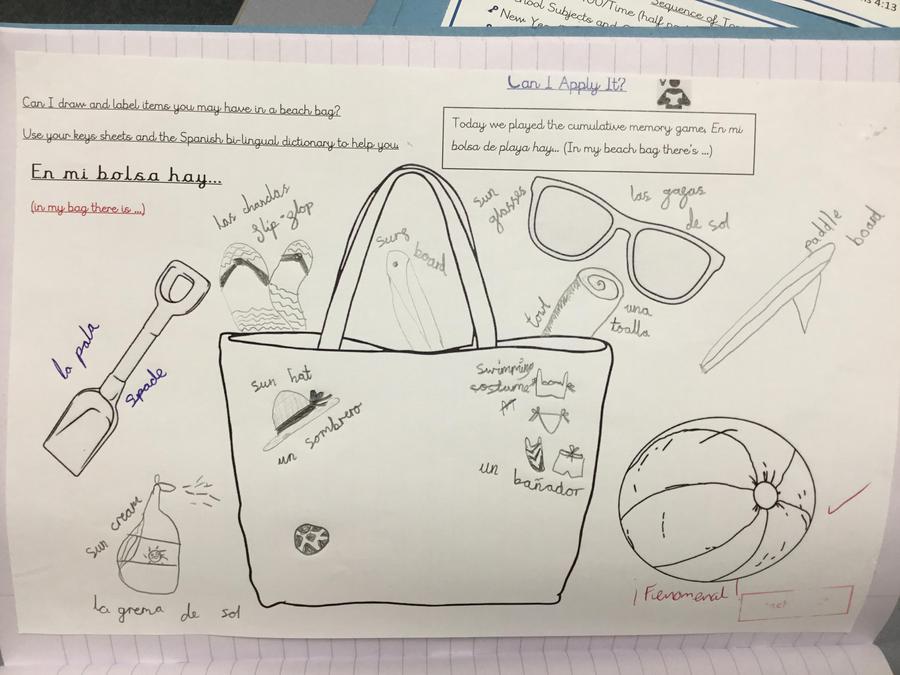
22.5.25 The alien family go to the beach.
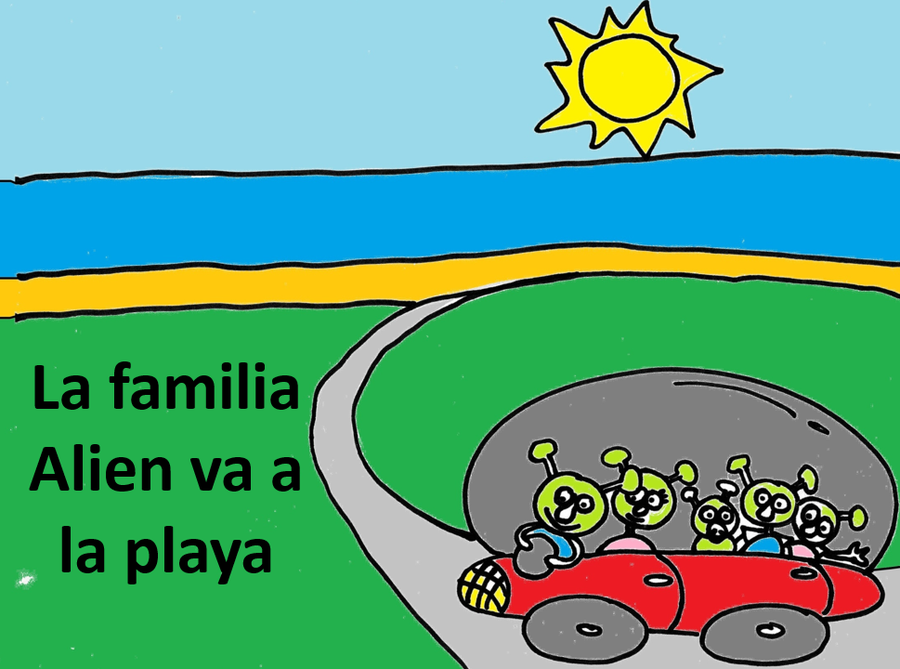
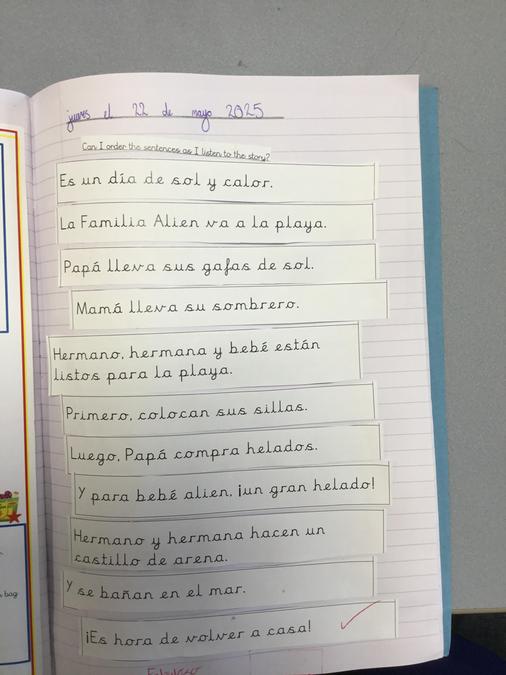
This week, we listened to a story in Spanish and had to put the story sentences in the right order.
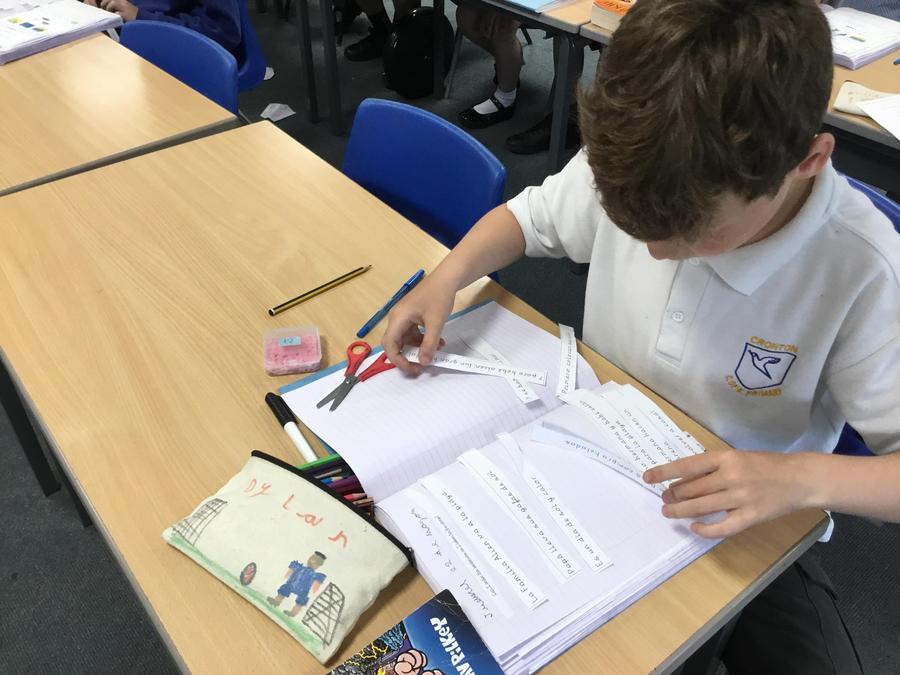
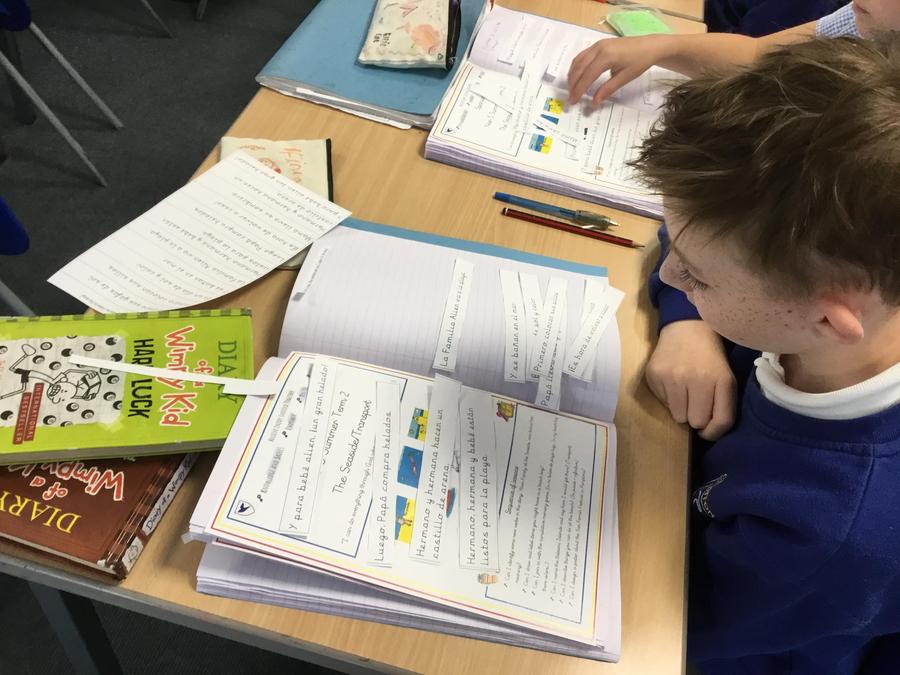
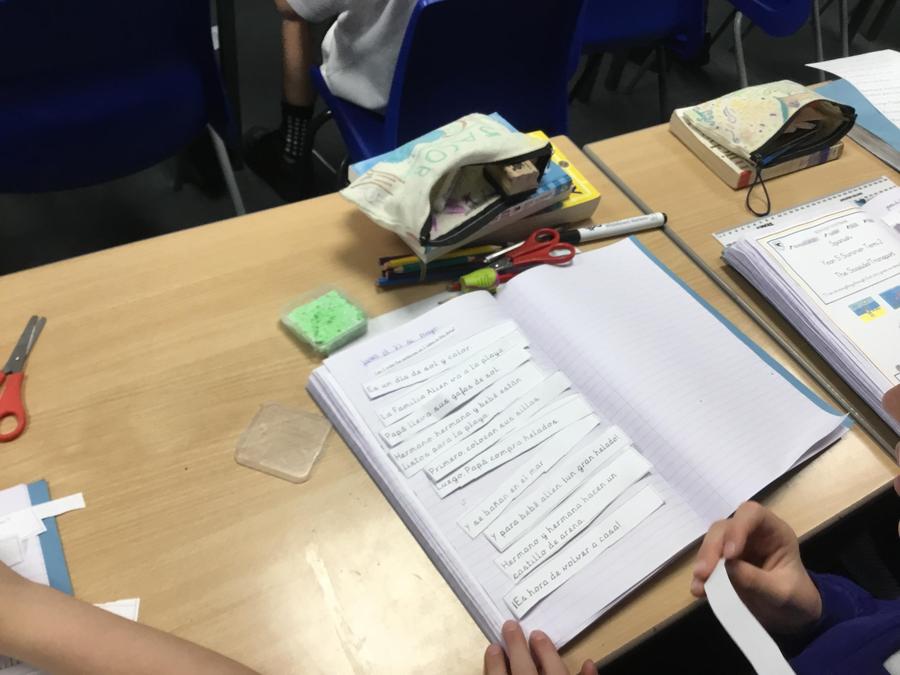
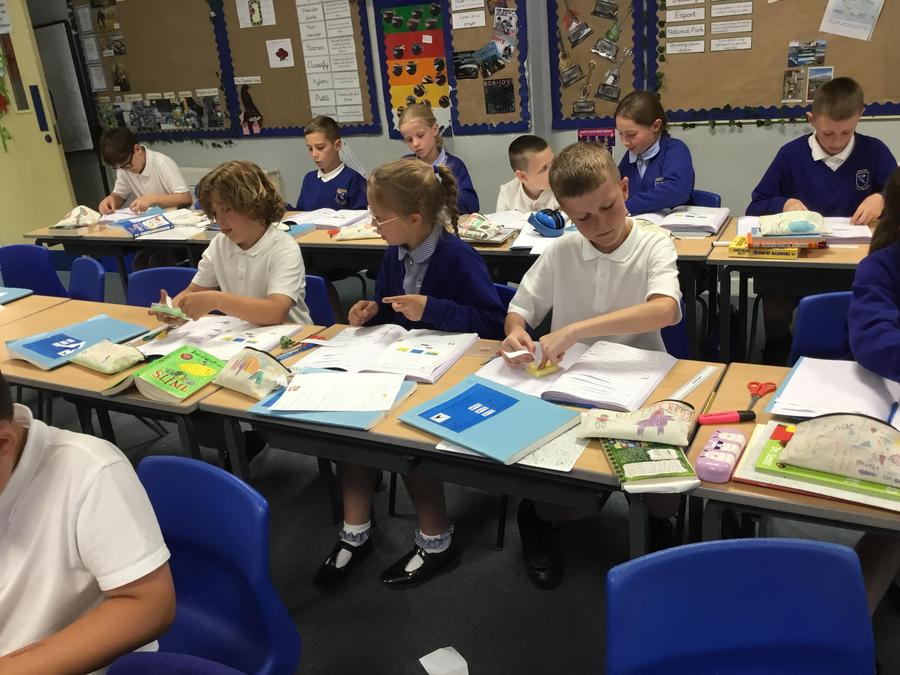
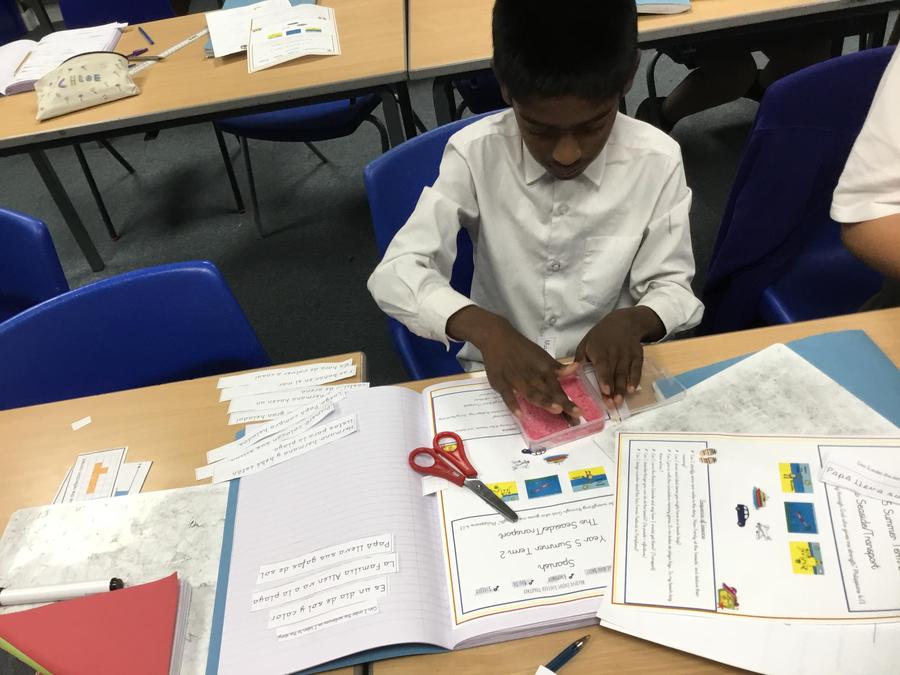
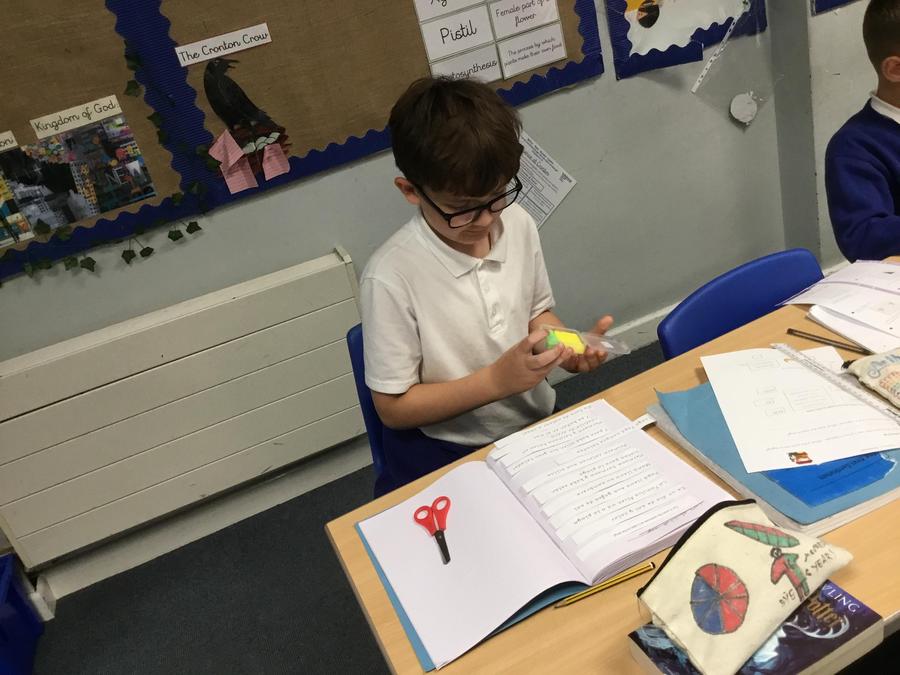
Then we looked at the story and tried to identify the verbs in it.
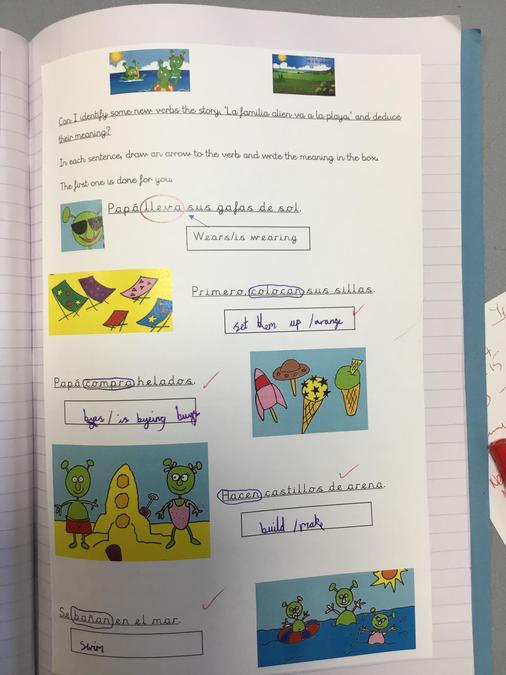
Summer 1
24.4.25
This week, we have been learning about the words a and the in Spanish. We practised using the fruit vocabulary that we already know.
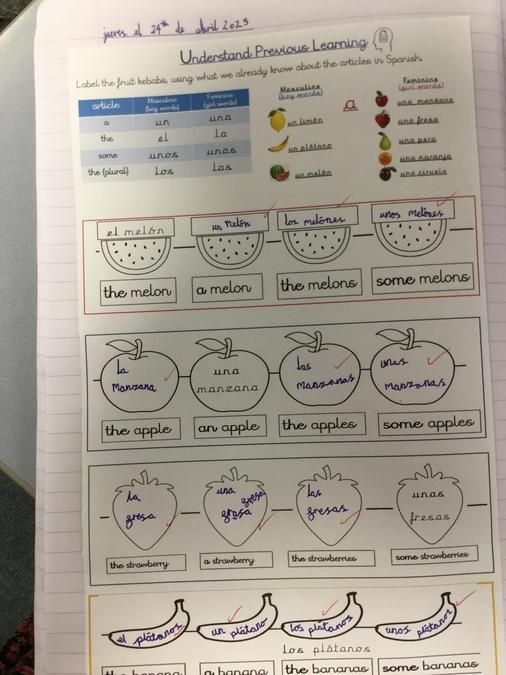
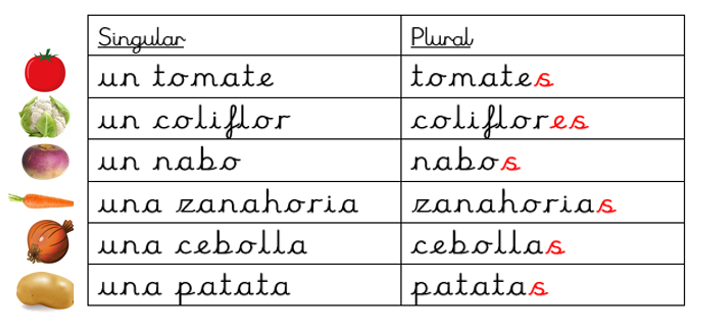
We also learnt the names of some common vegetables, and practised them by playing Quiz Quiz Trade.
year-5
Then we practised conversations at the market, asking to buy fruit and vegetables politely.
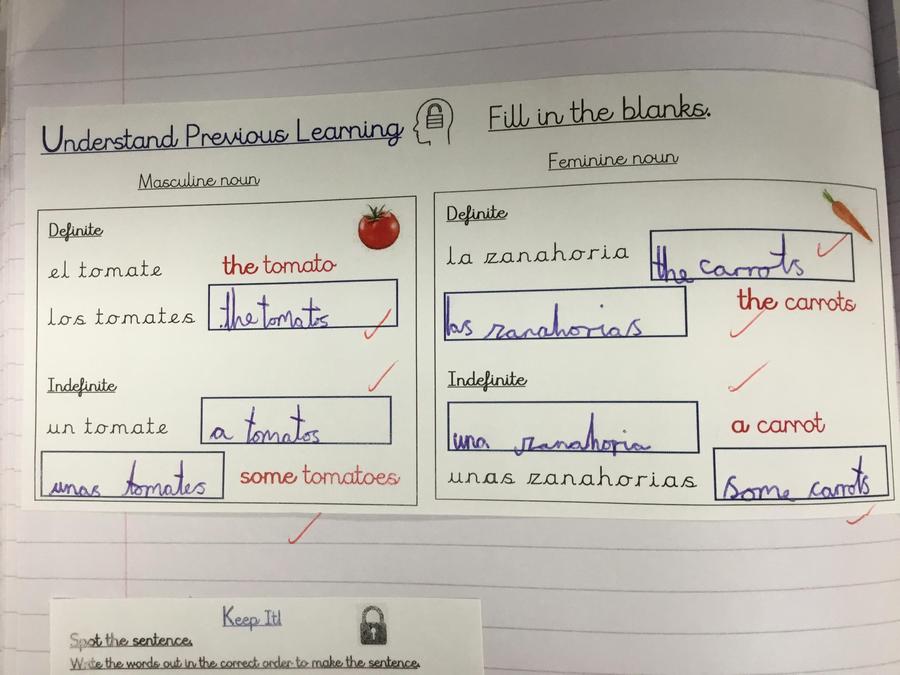
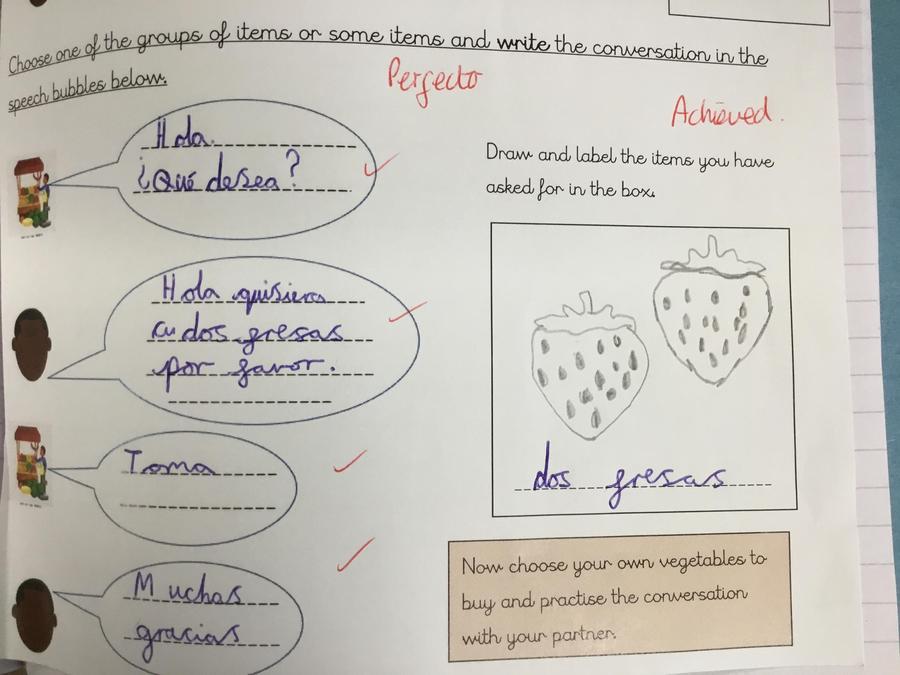
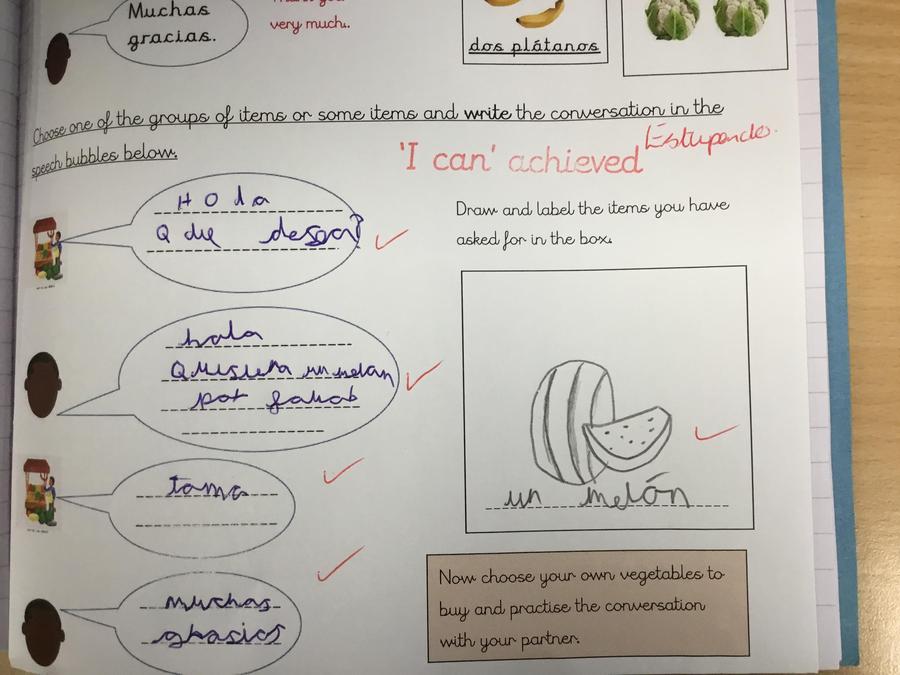
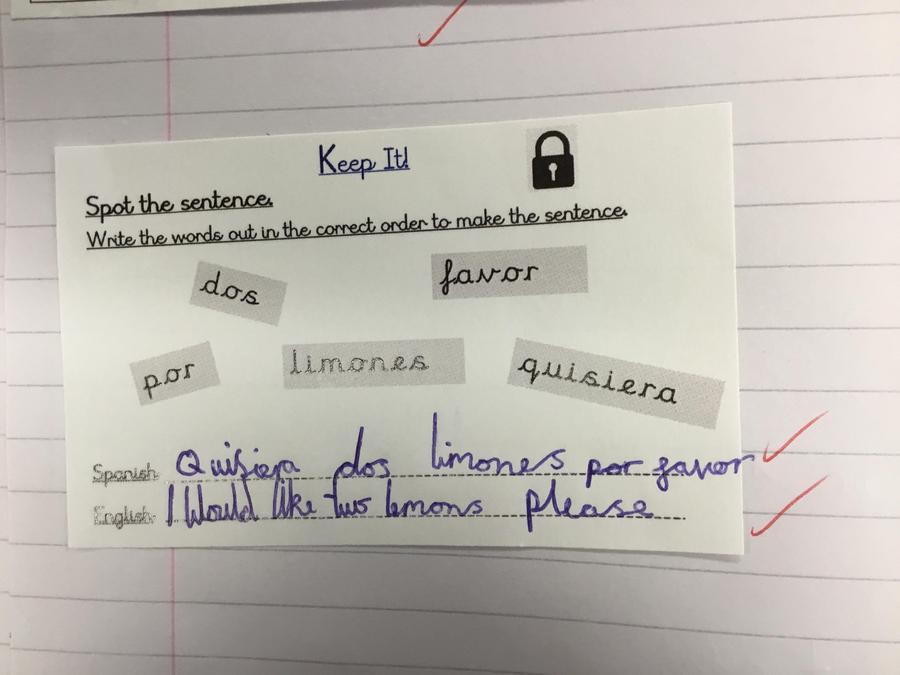
Spring 2
3.4.25
This week, we have been building sentences about the clothes we wear in different weather conditions. We used all the phrases we have learnt this half term.
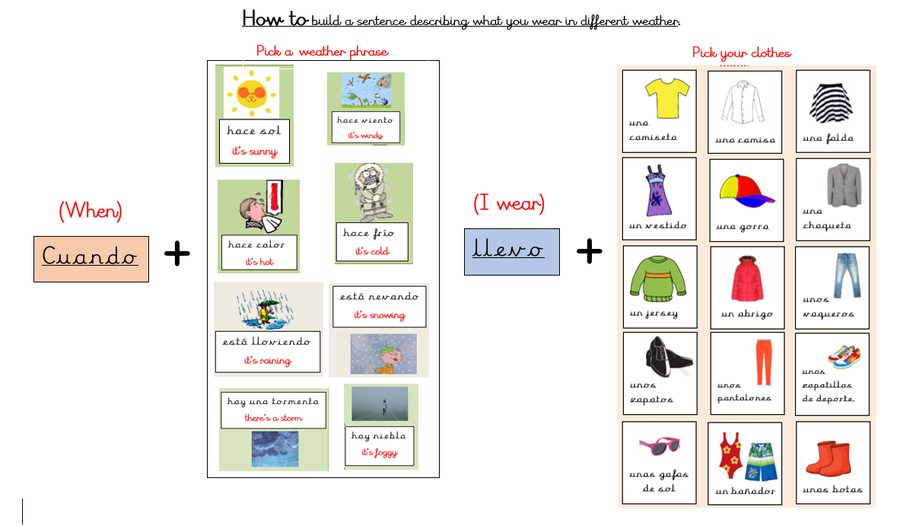
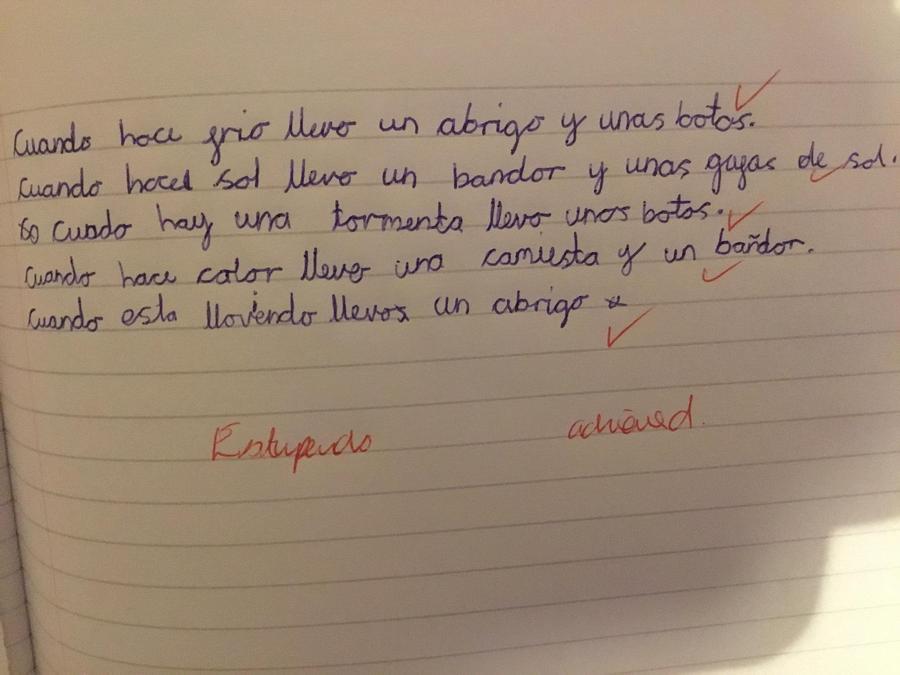
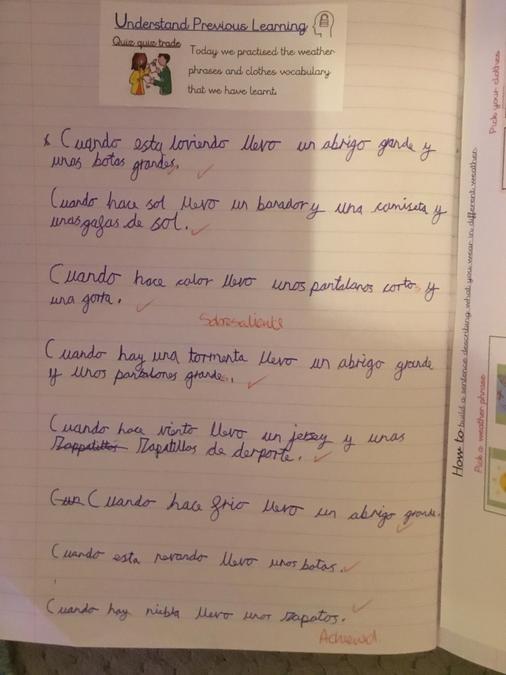
27.3.25
Today we started to learn the names of clothes, and practised using the different words used in Spanish for a and the.
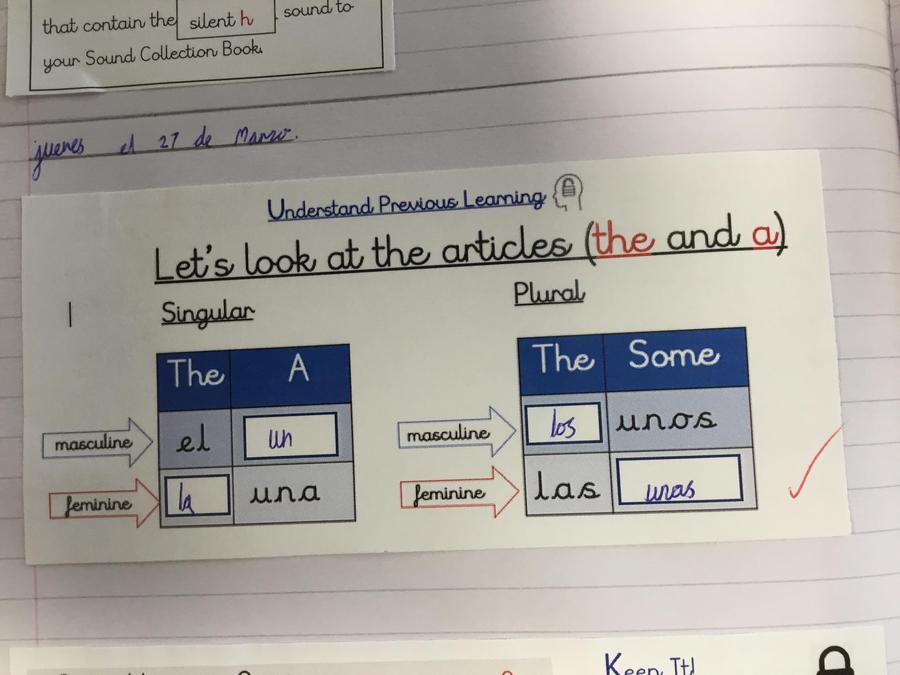
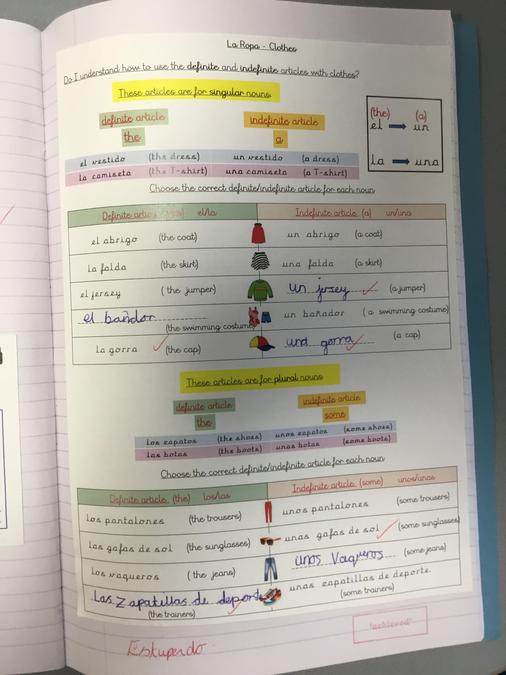
6.3.25
This week, we have been learning how to say what the weather is like in Spanish.
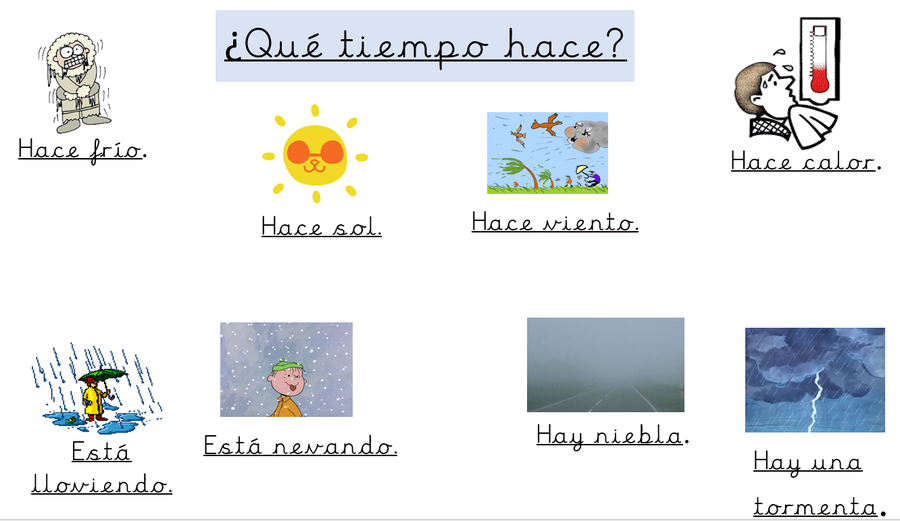
year-5
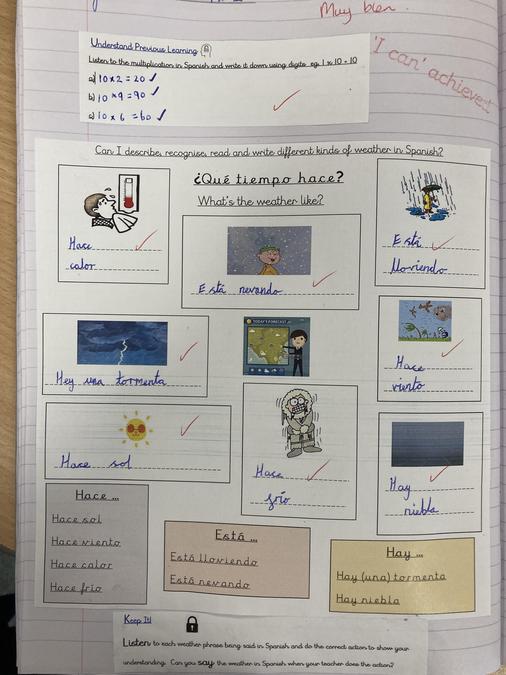
27.2.25 Mardi Gras Celebrations
This week, we looked at a Spanish text all about Mardi Gras. We looked for cognates (words similar to English ones) and used what we already know about the carnival to help us to understand the gist of the text.
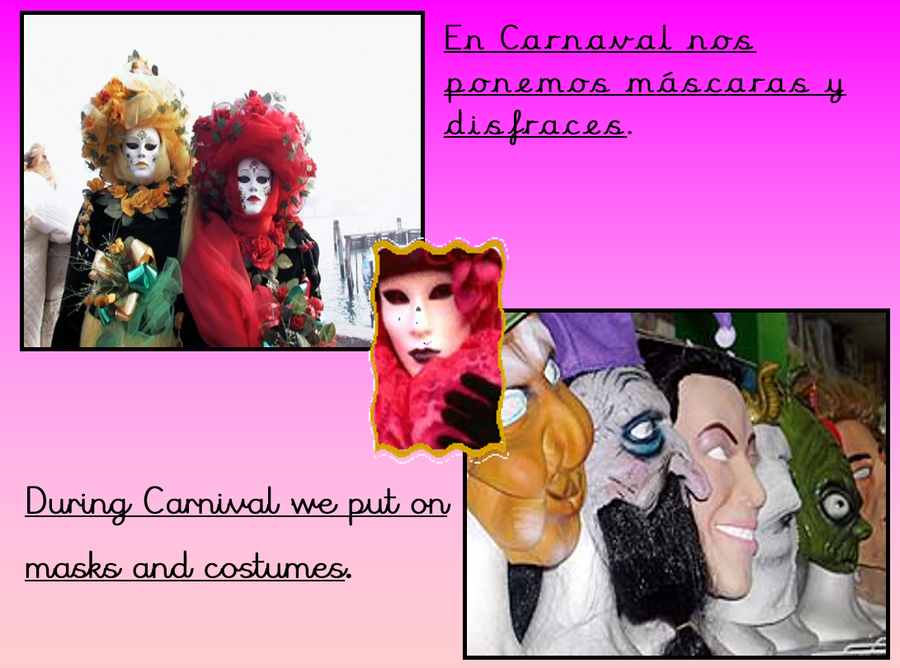
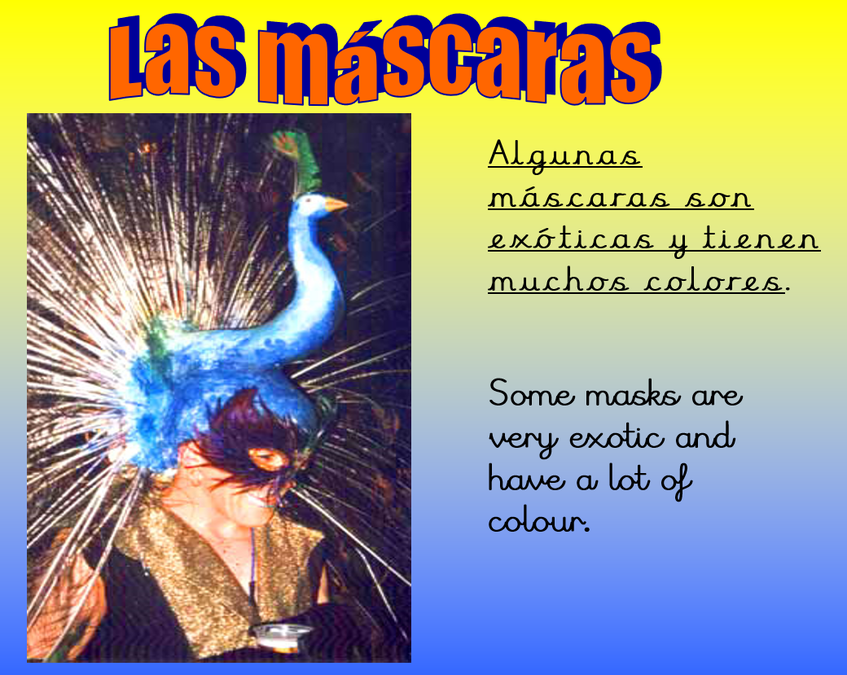
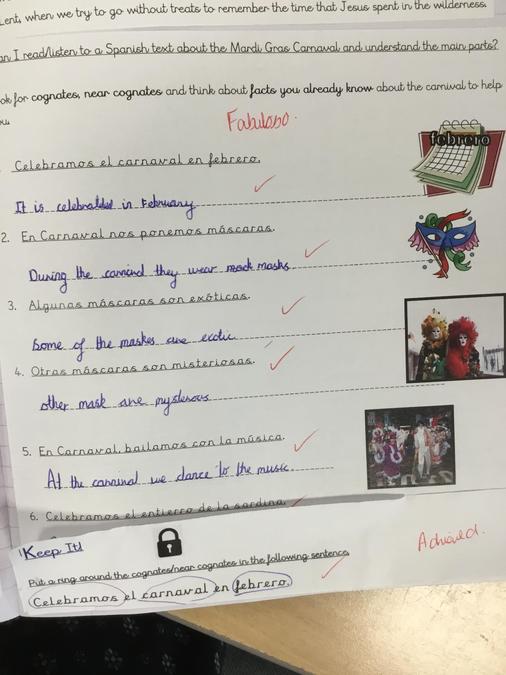
Spring 1
13.2.25
Today, we have been practising how to ask politely for an entrance ticket for different places.
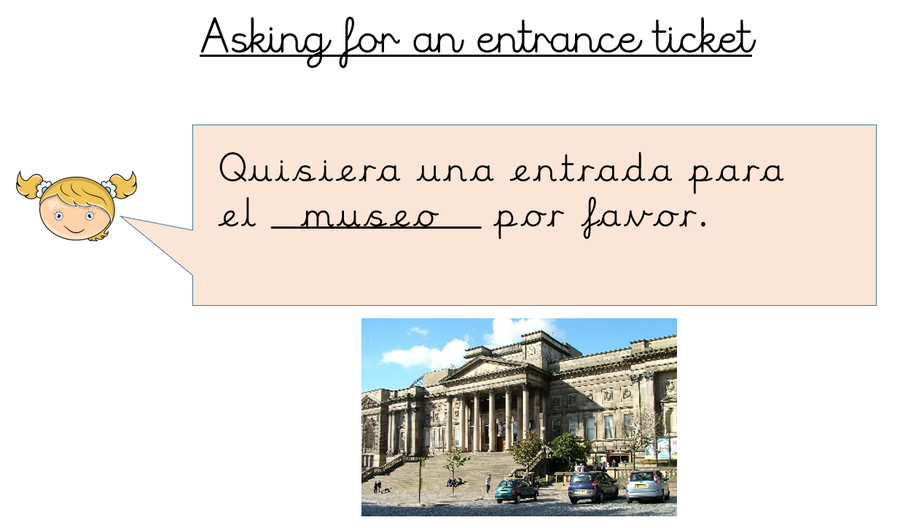
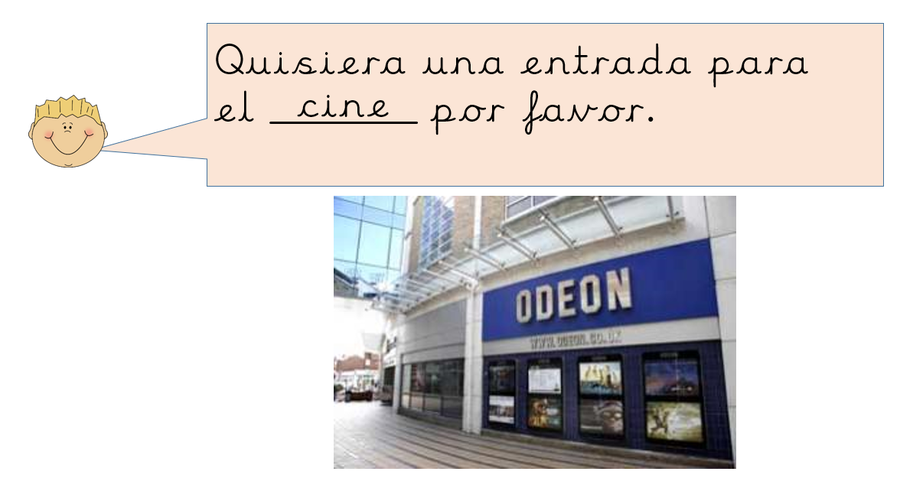
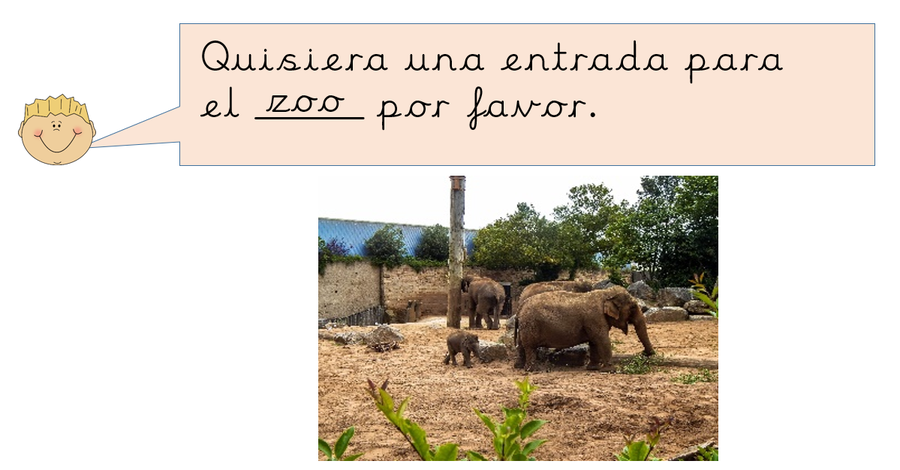
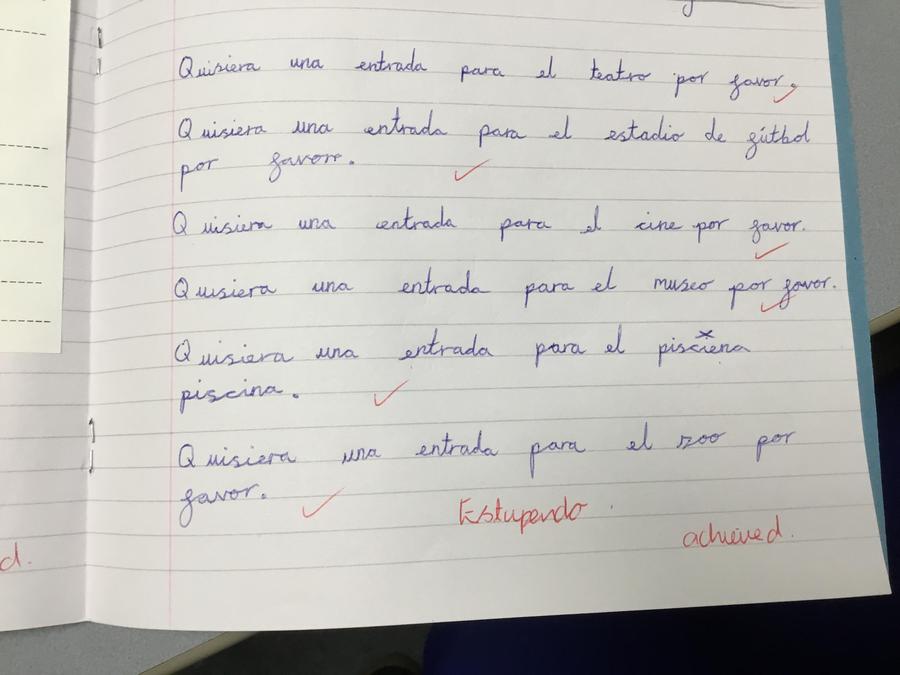
6.2.25
Today we looked at the whole pattern (paradigm) of the verb to go in Spanish, and practised making different sentences, using the places in the city that we know.

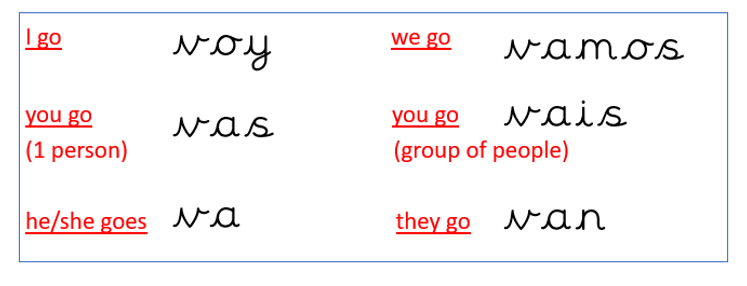
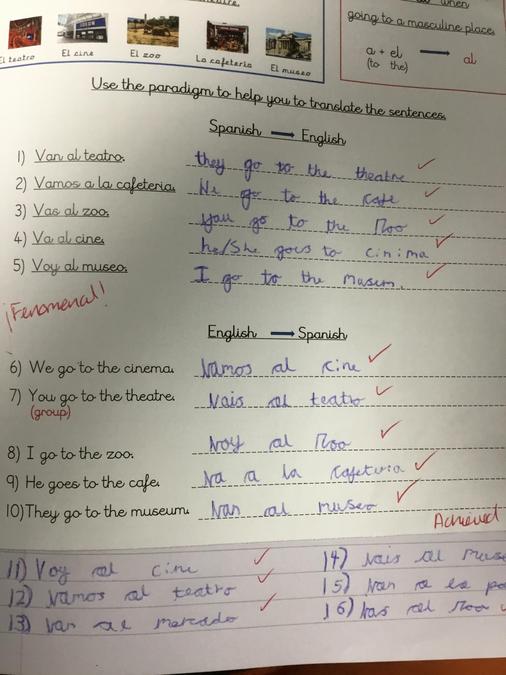
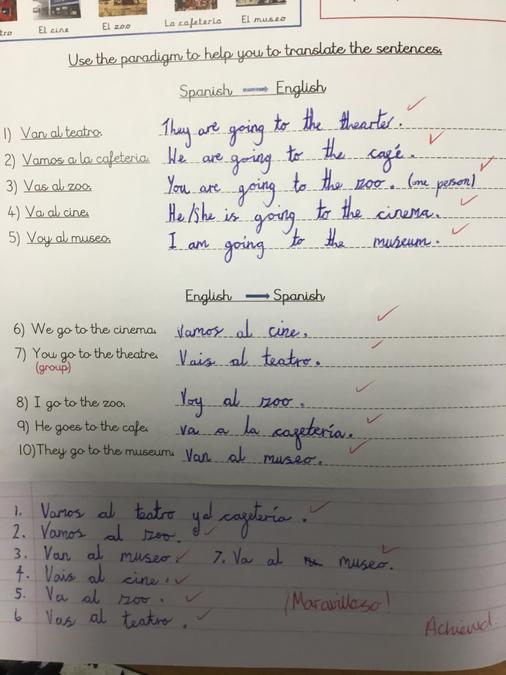
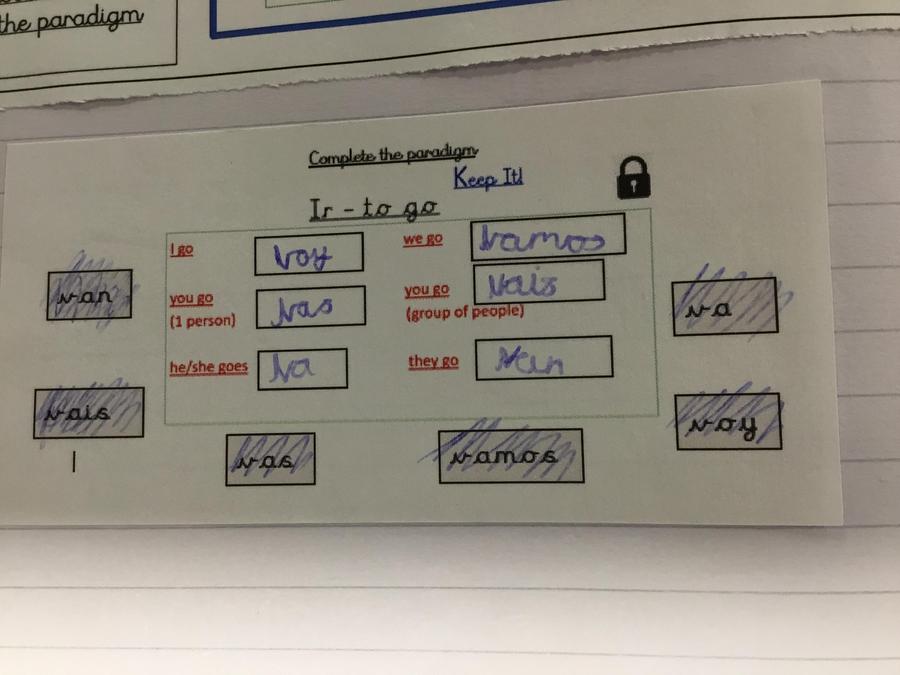
30.1.25
Where are you going? I'm going to...
This week, we learnt a new question and answer.
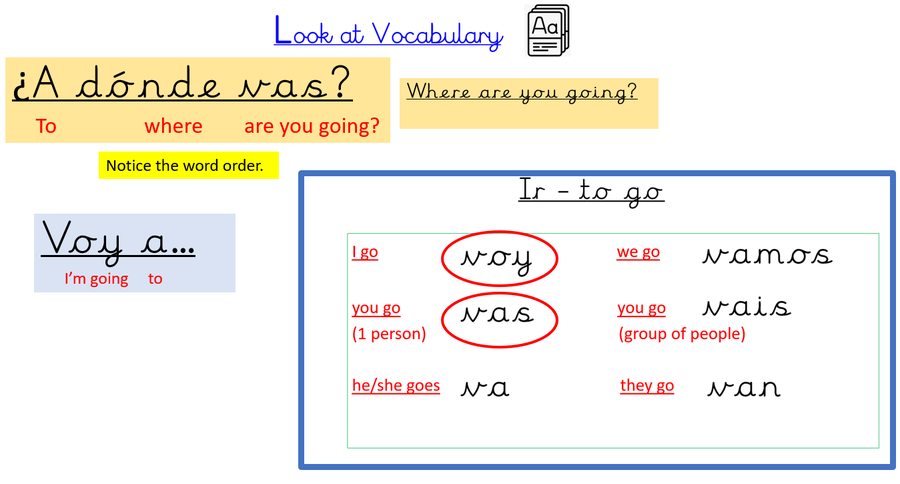
For places with masculine names, the contraction al is used.
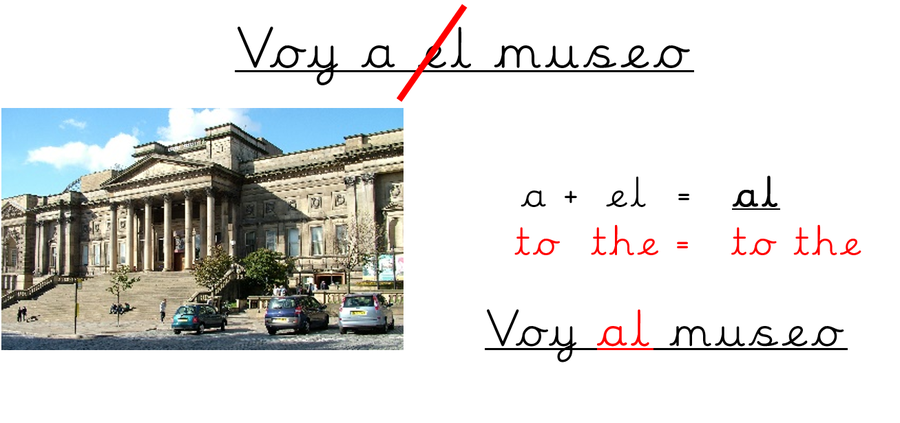
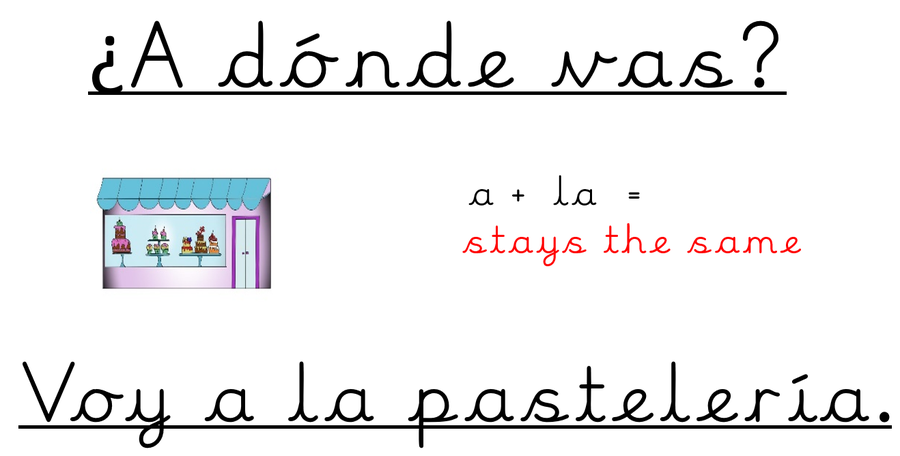
We practised the question and answer by playing Quiz Quiz Trade.
year-5
Where are you going?
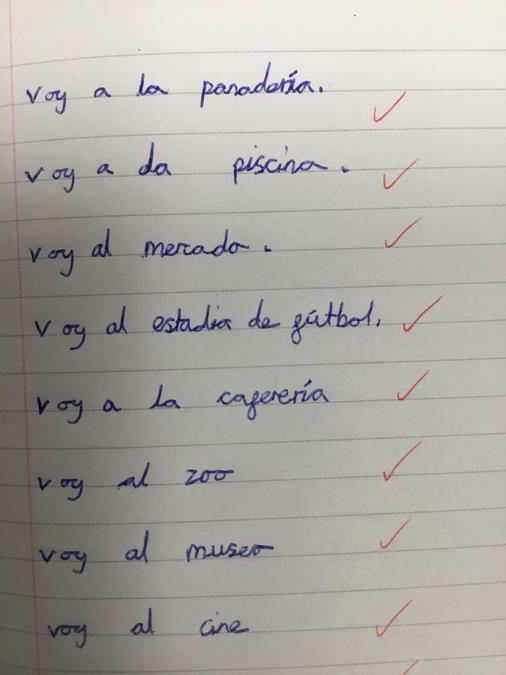
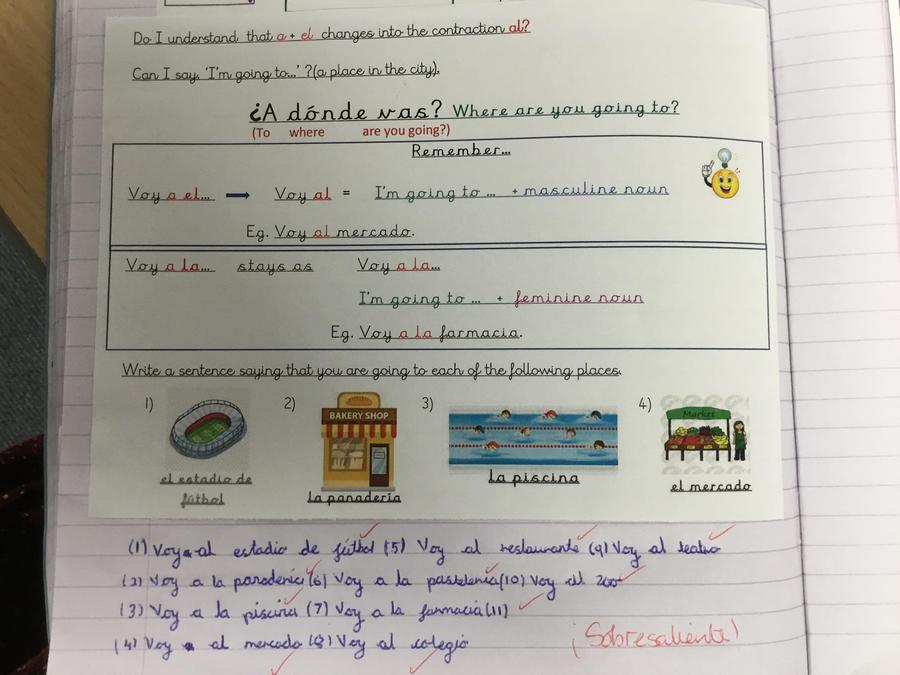
24.1.25
This week we have been learning about the two different words for 'this' in Spanish, and when to use each one.
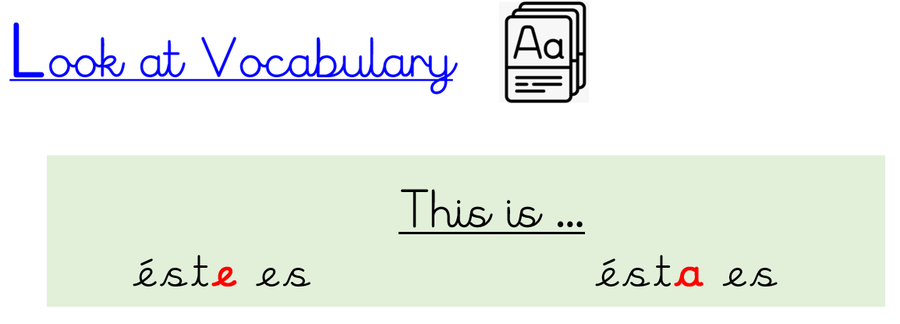
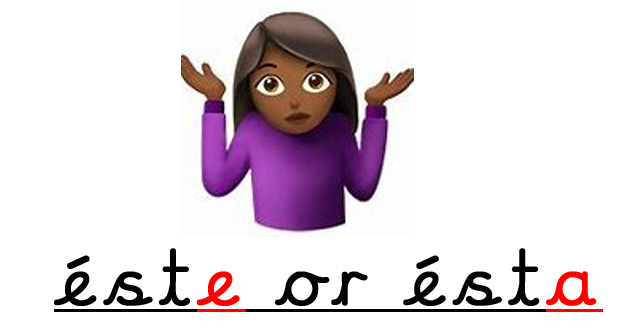
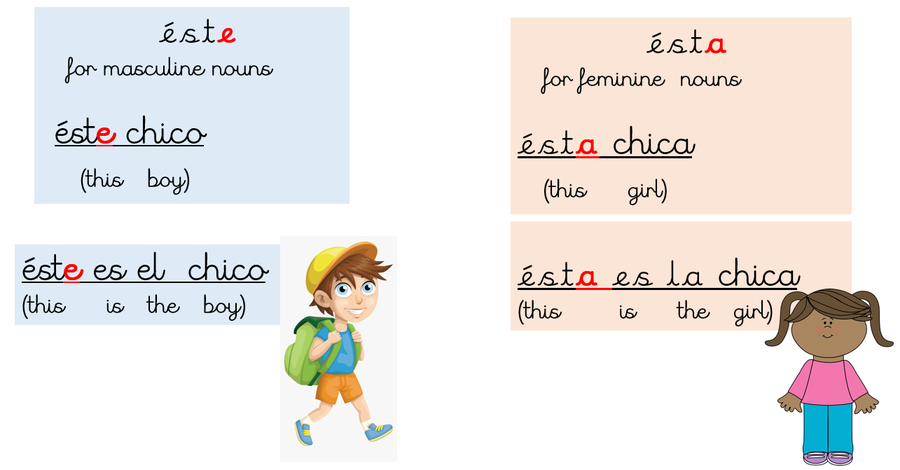
To practise, we used the word 'this' with the places in the city we have been learning.
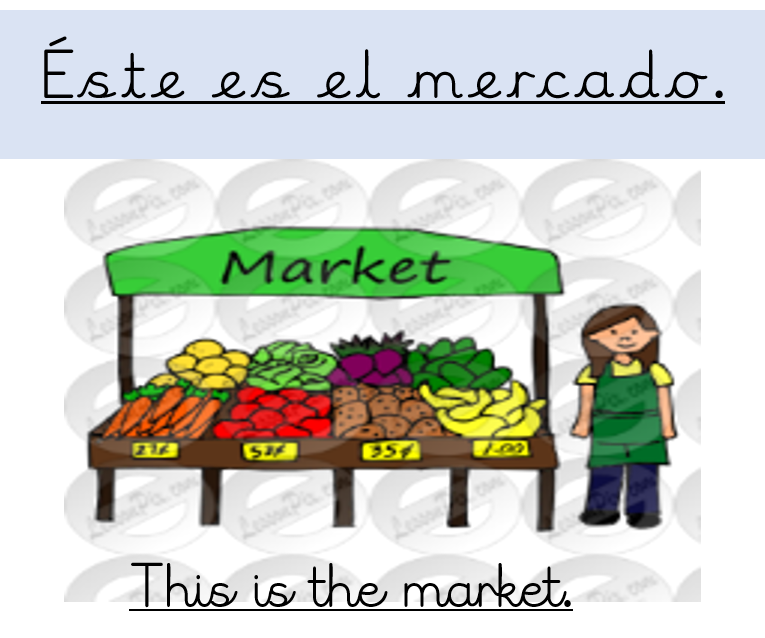
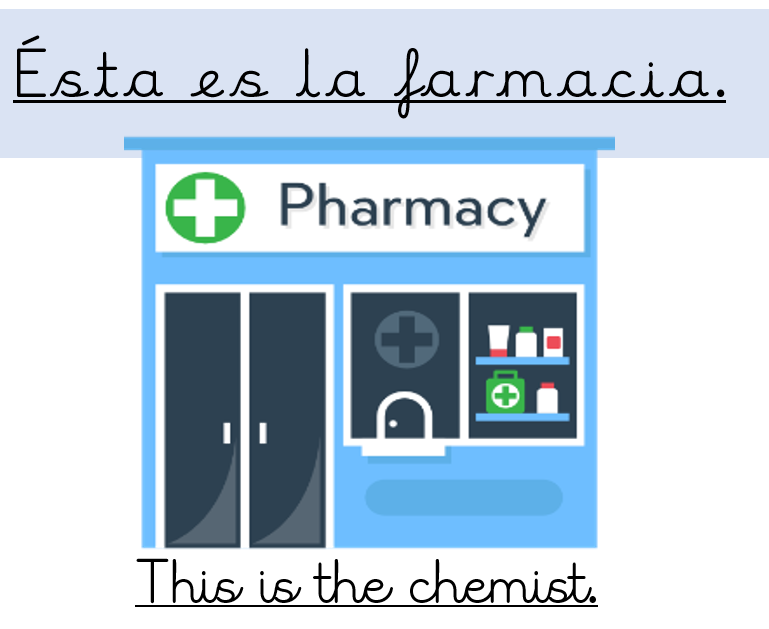
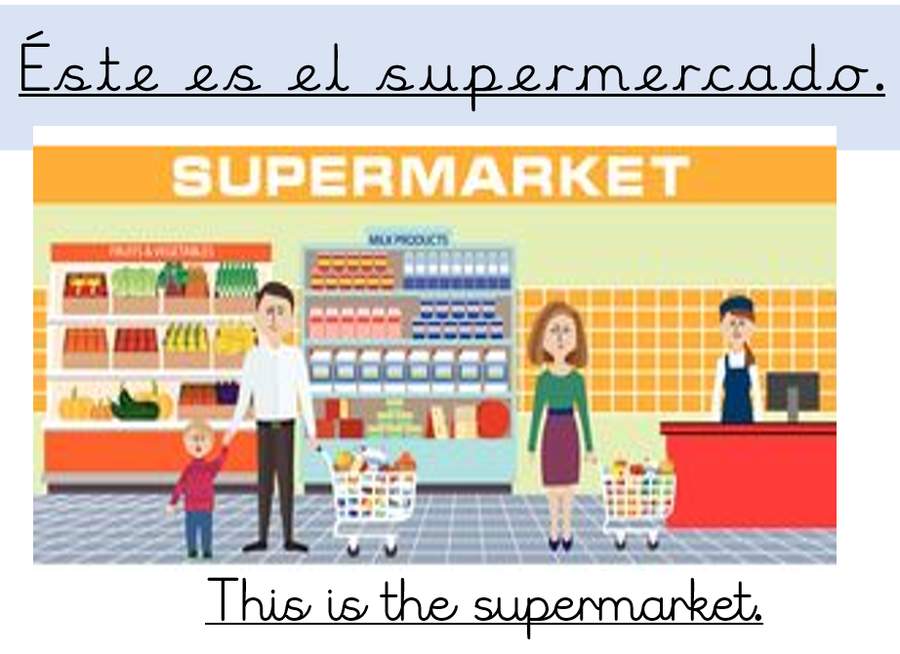
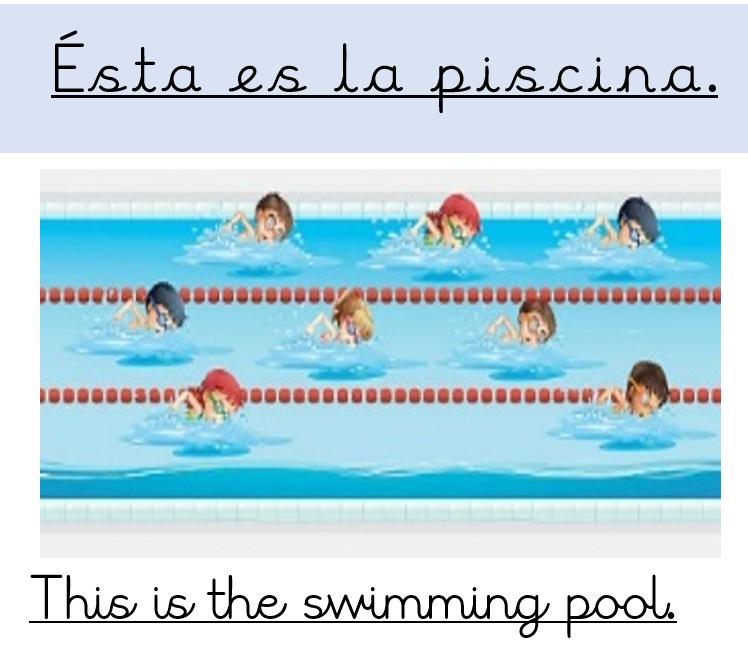
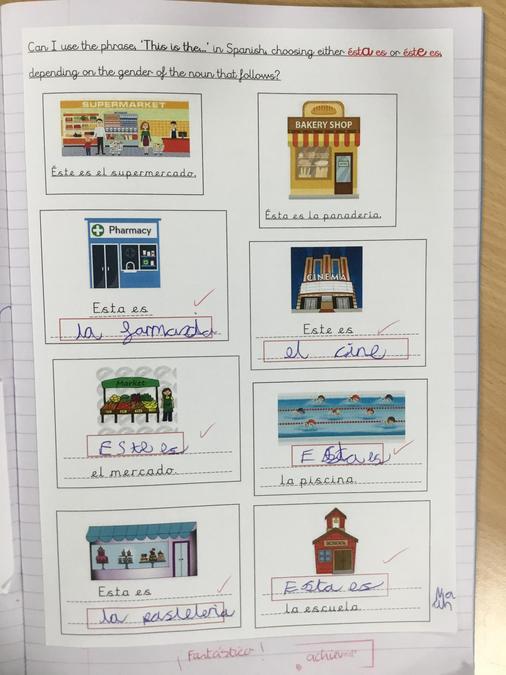
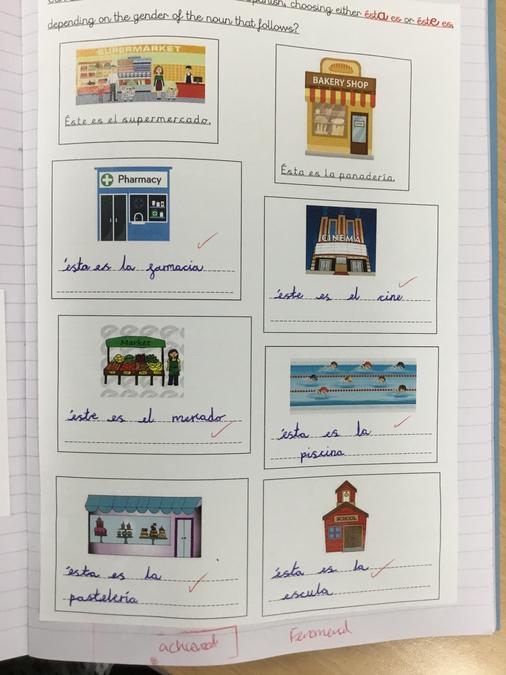
16.1.26
Today we have been learning how to describe position with prepositions in Spanish. We used a simple plan of the town to help us.
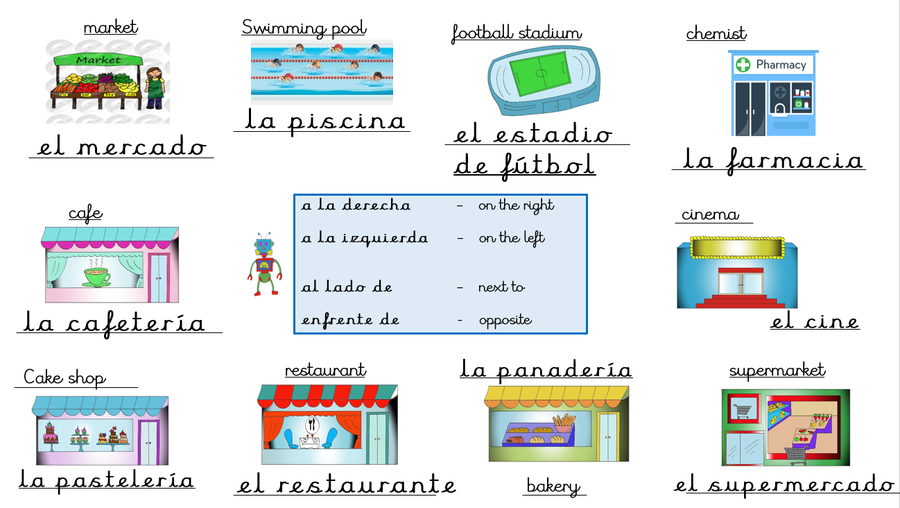
We already know how to say right and left, so we learnt how to say next to and opposite.
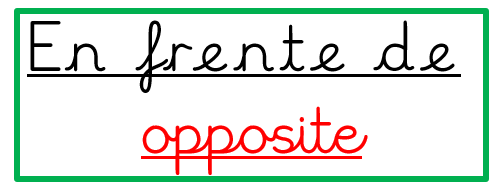
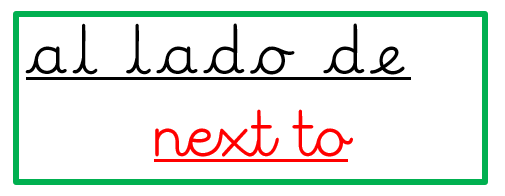

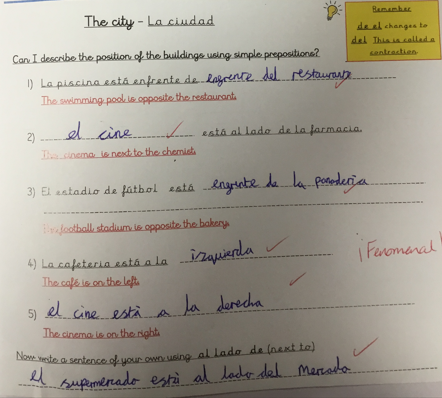
To finish, we looked at the spelling patterns found in some of the places we have learnt to say.
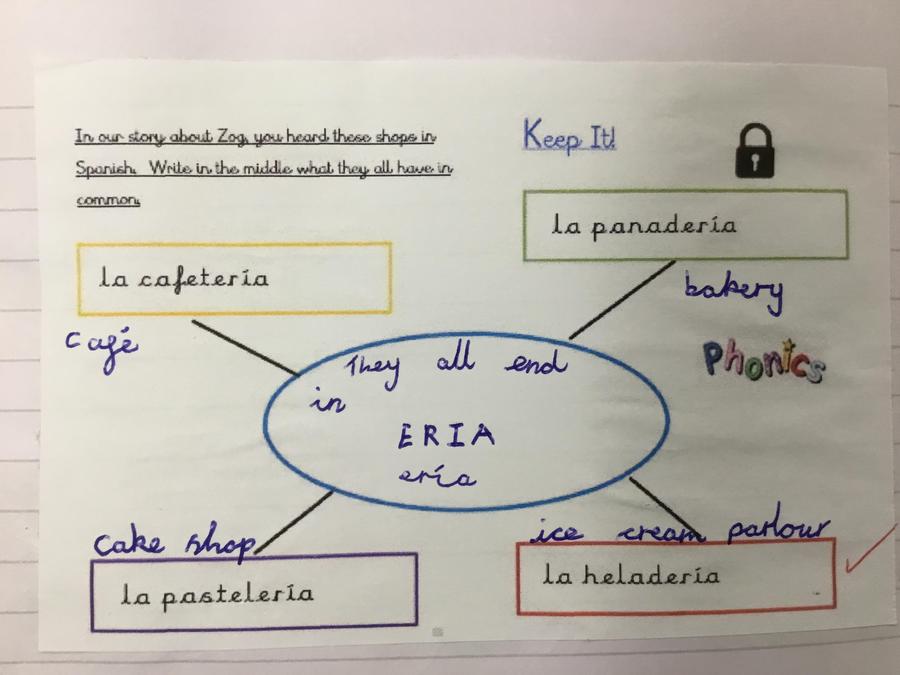
9.1.25
Happy New Year
Today we learned about a very strange tradition that takes place on New Year's Eve.
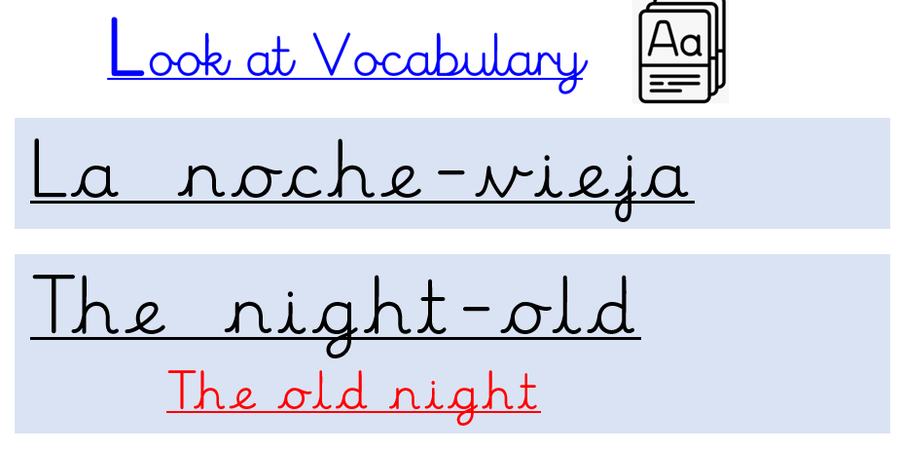
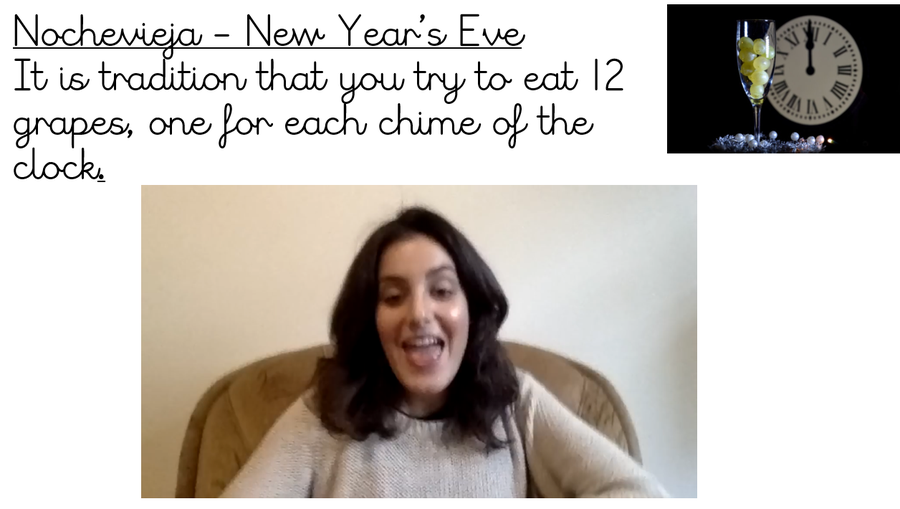
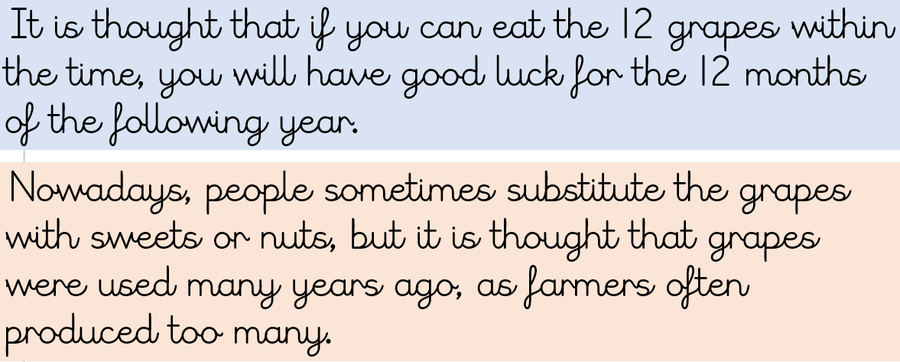
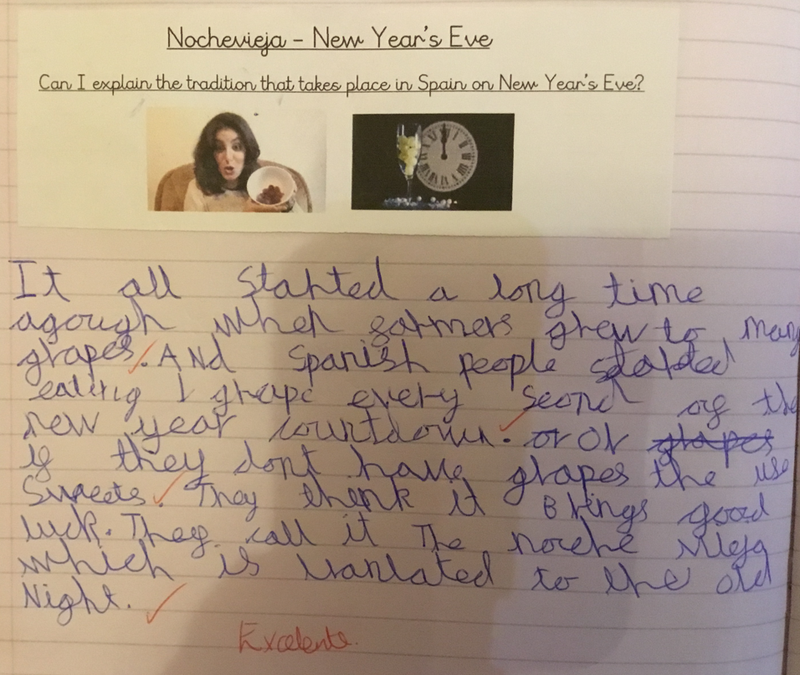
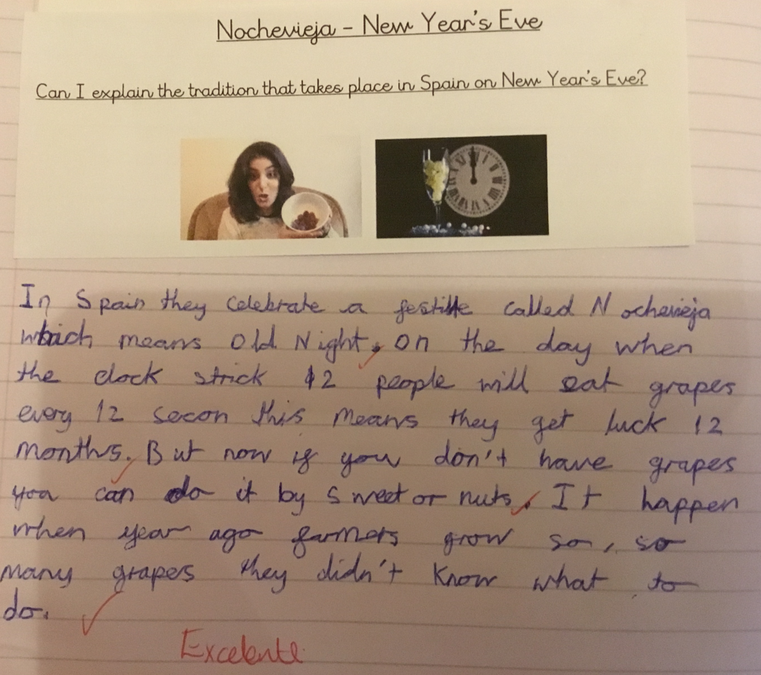
Cognates in the City
This week, we have started to learn the names of popular places to go and visit in the city. First of all we listened to the vocabulary to see if we could deduce its meaning. Then we looked at the words written down and discovered that a lot of the words are the same or similar to English words. We call these words cognates.
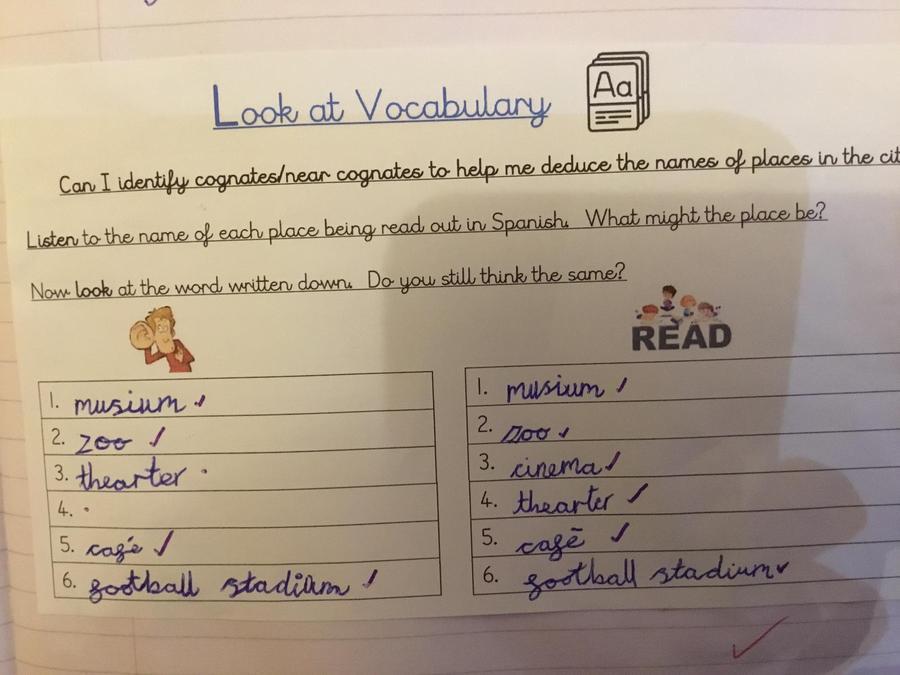
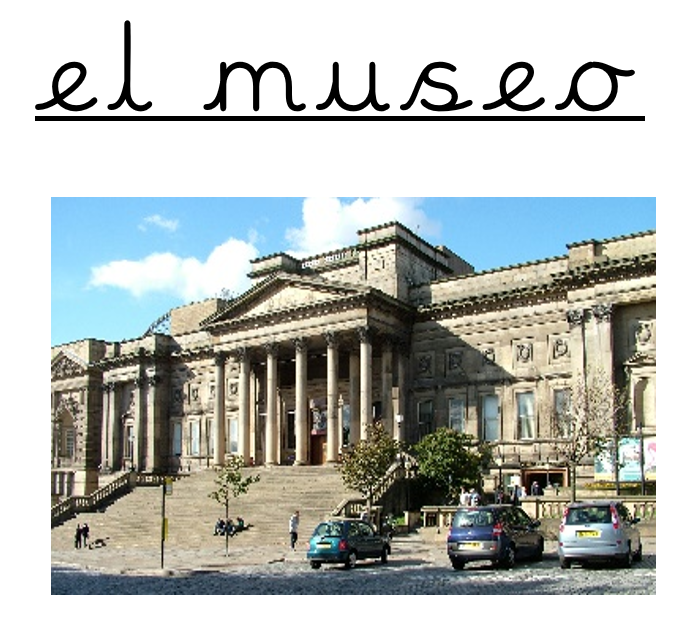
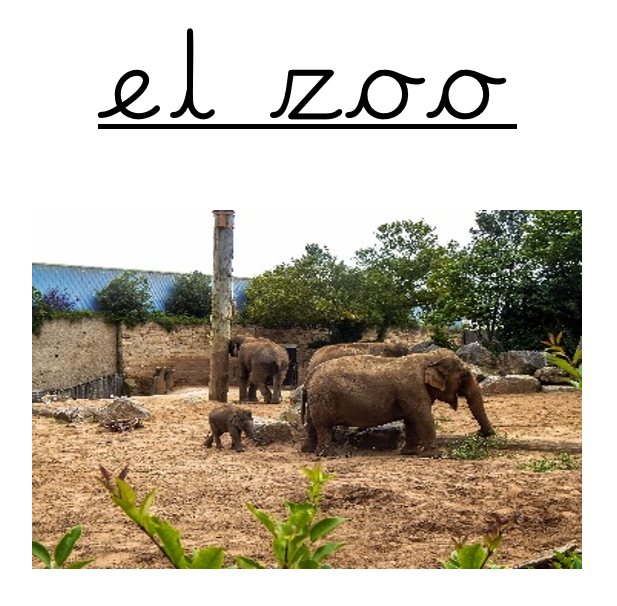


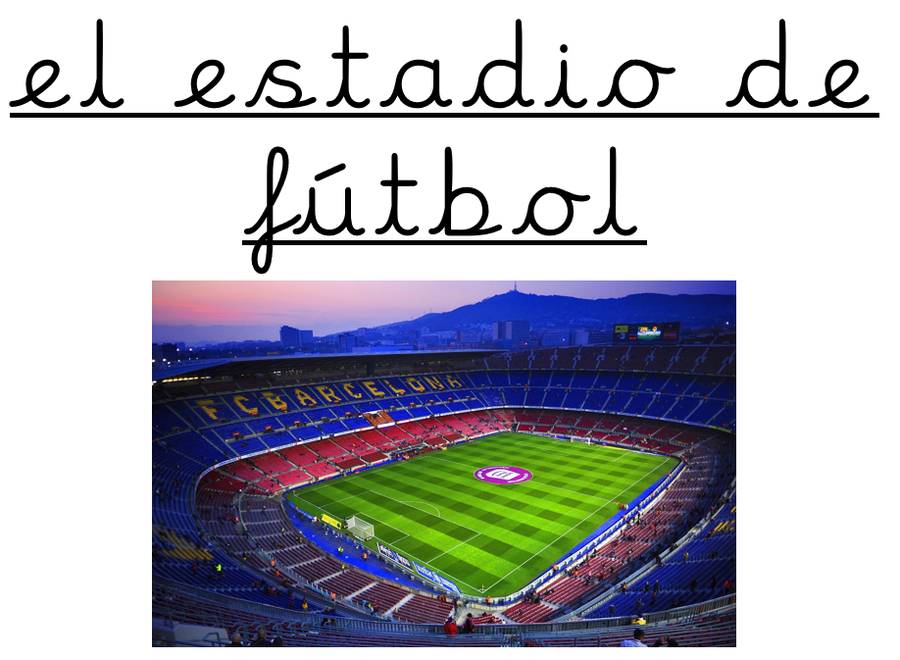
Then we used the bilingual dictionary to find the names of other places in the city.
year-5
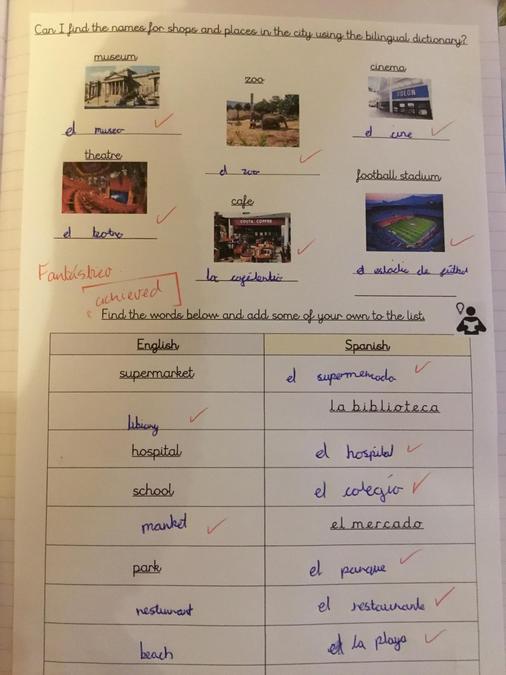
Autumn 2
School Subjects
12.12.24
Today, we wrote sentences giving reasons for our school subject preferences. We used the chart to help us and joined our sentences with the word because. (porque)
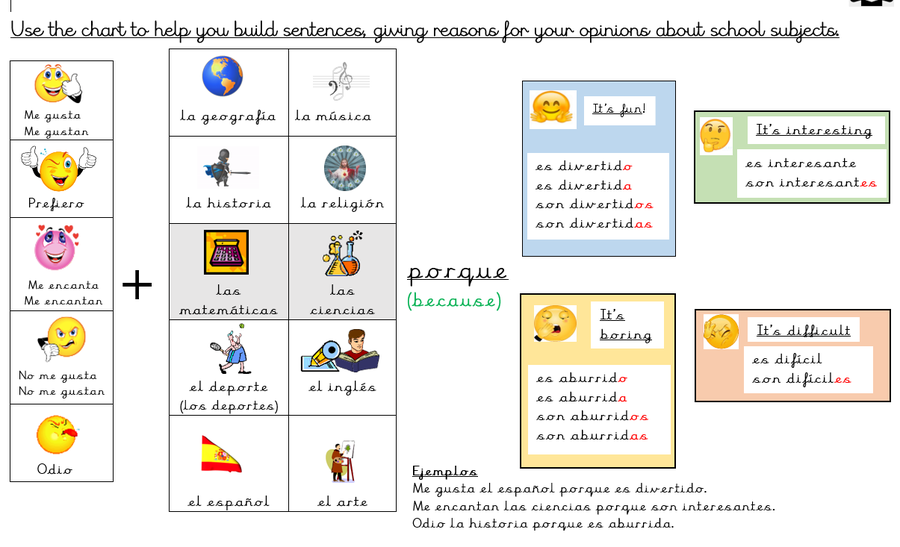
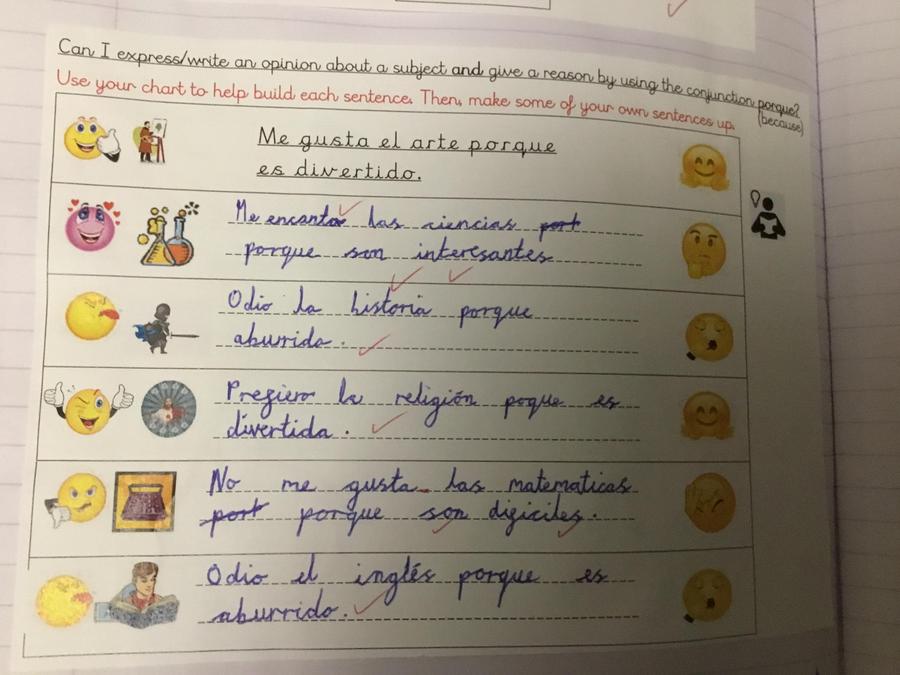
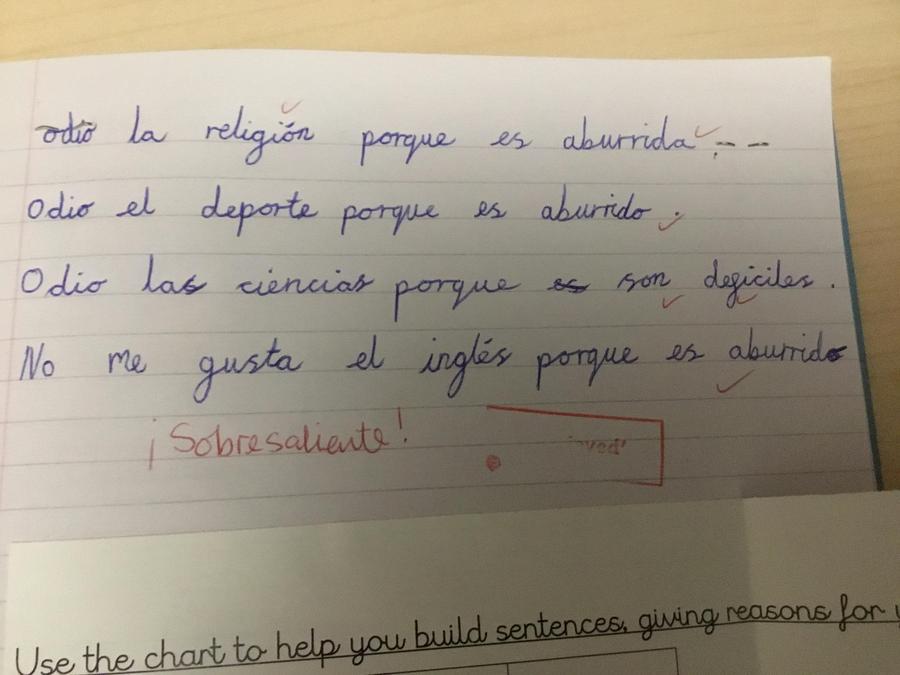
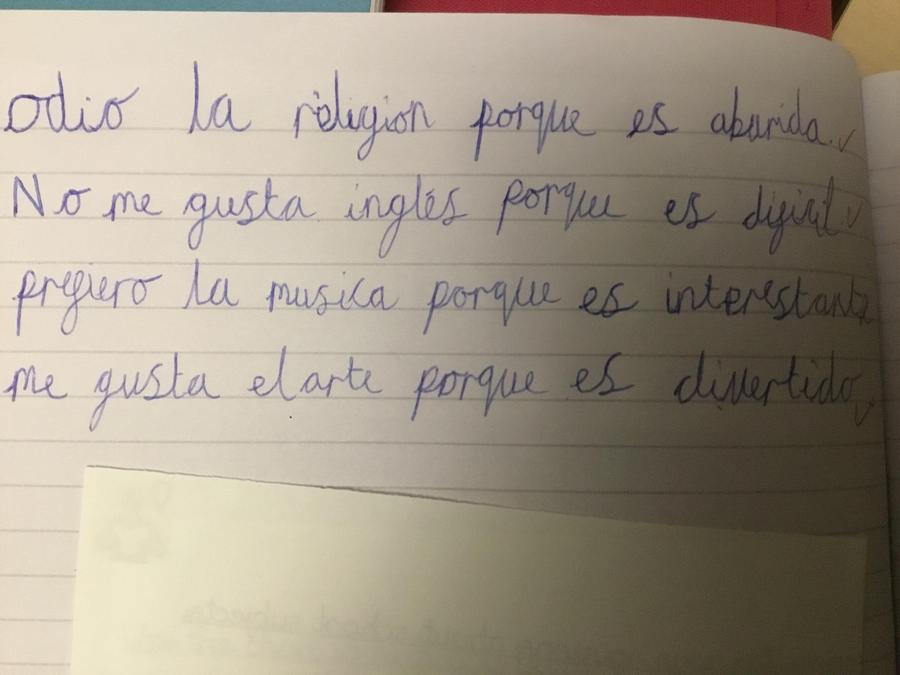
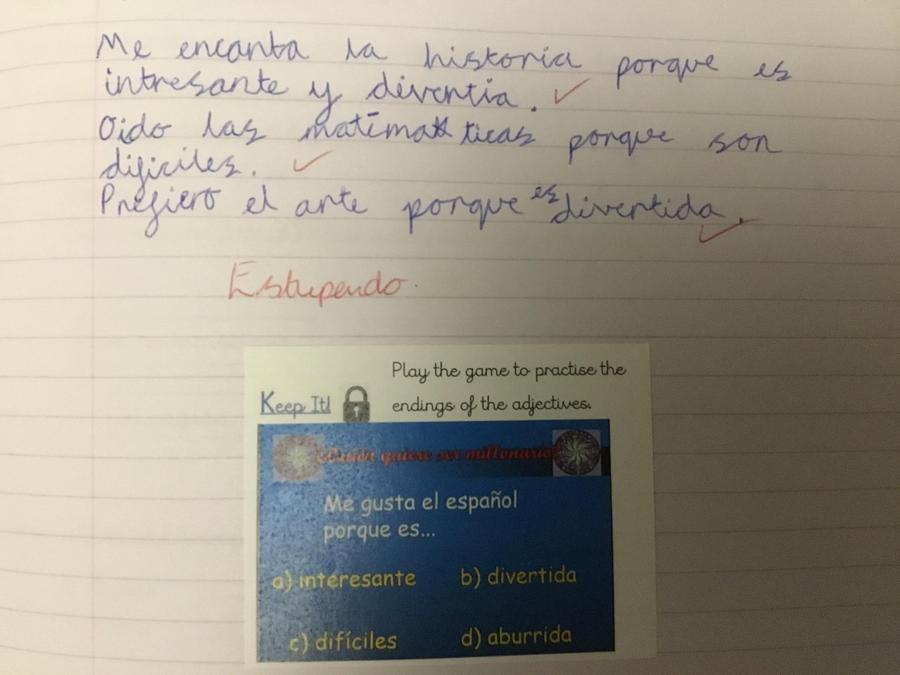
5.12.24
Today, we learned how to express our preferences of certain school subjects.
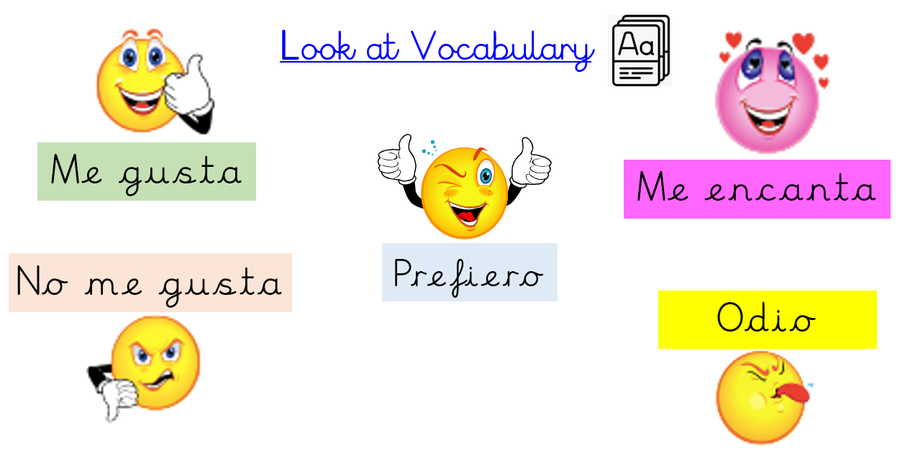
We discovered that some of the phrases can change slightly, depending on whether they are describing a singular or plural subject.
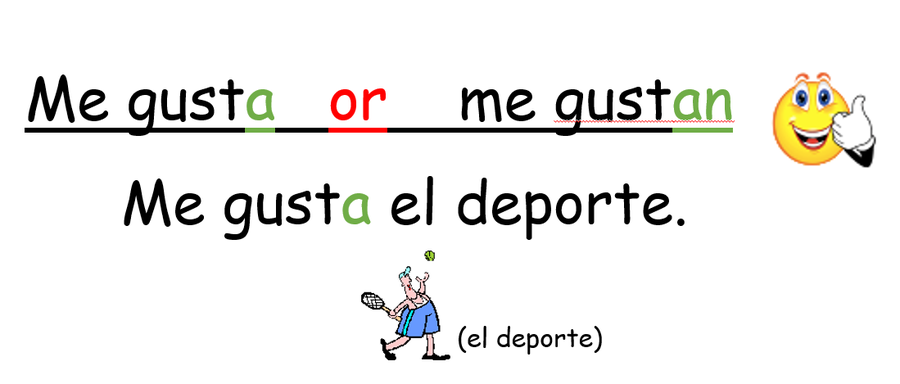
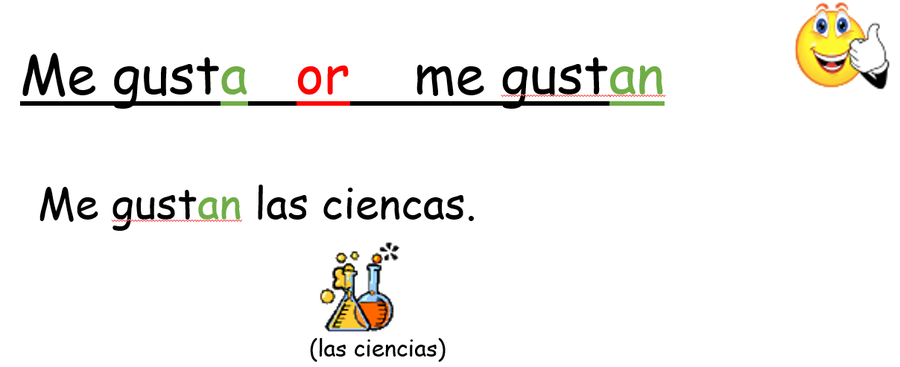
I like Sport I like Sciences
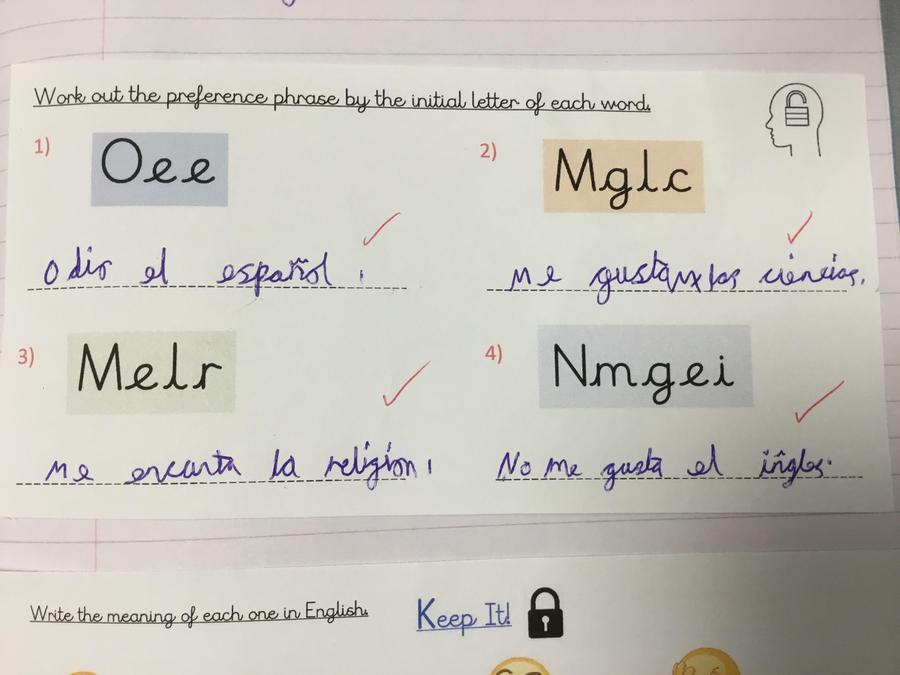
Finally, we learnt some adjectives to describe each subject. Once again, the endings of the adjectives can change in order to match the school subject (noun) it is describing.
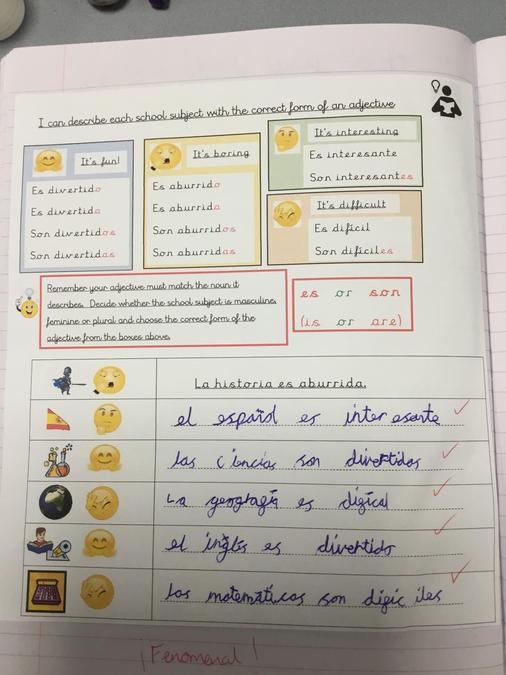
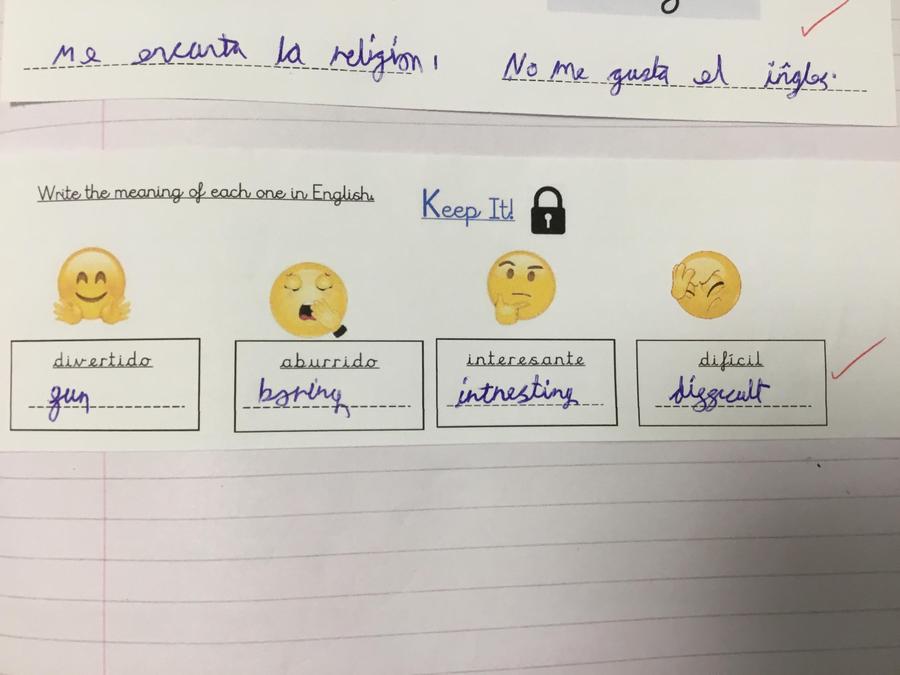
3.12.24
This half term, we have been learning about school subjects in Spanish. They are easy to remember as a lot of them are cognates, which means that the Spanish names are very similar to the English names. We separated them into 3 groups.
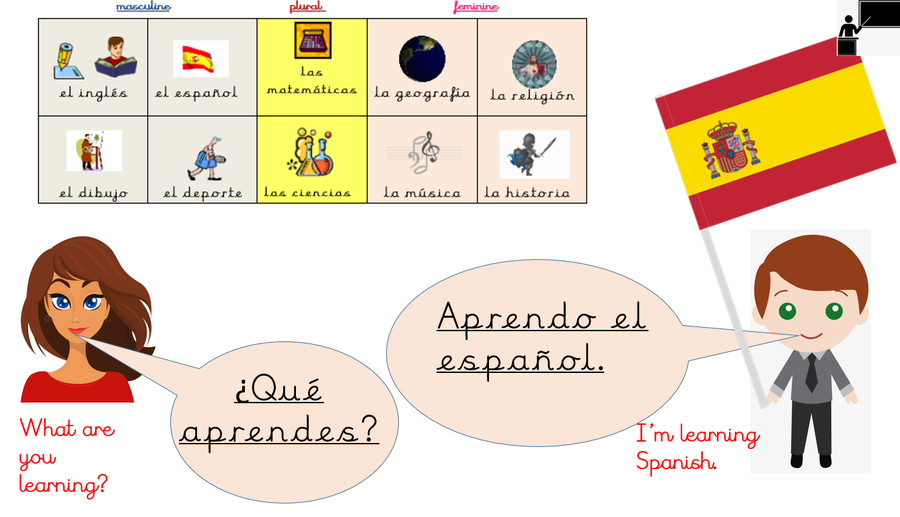
We practised asking each other the question in a game of Quiz Quiz Trade.
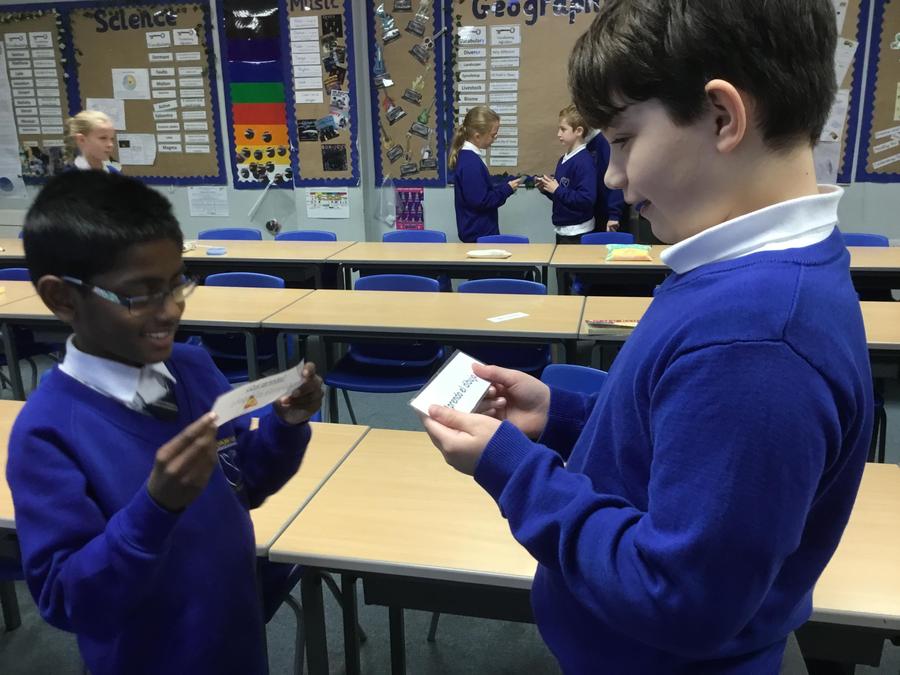
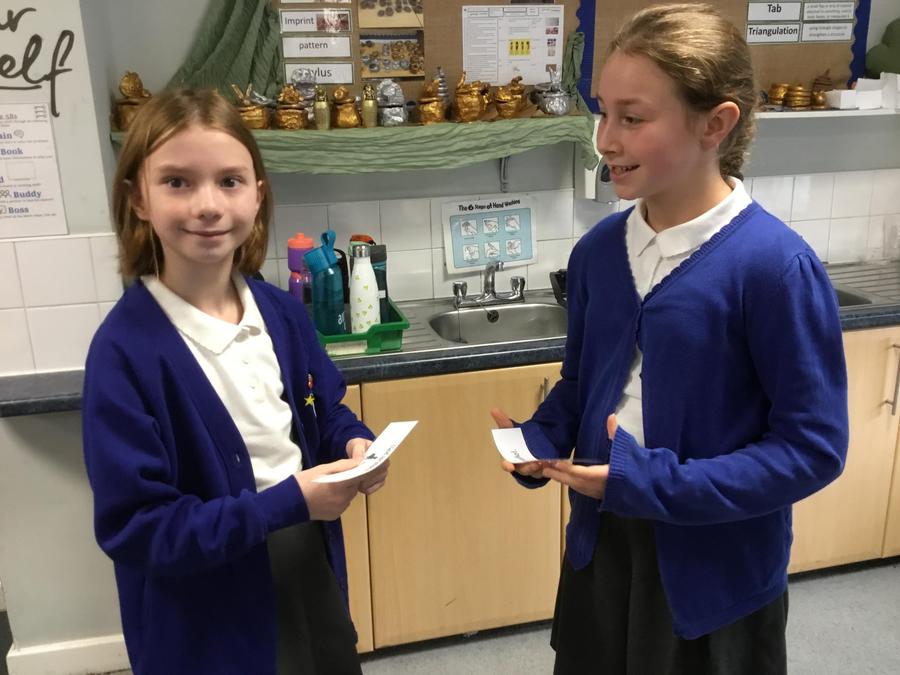
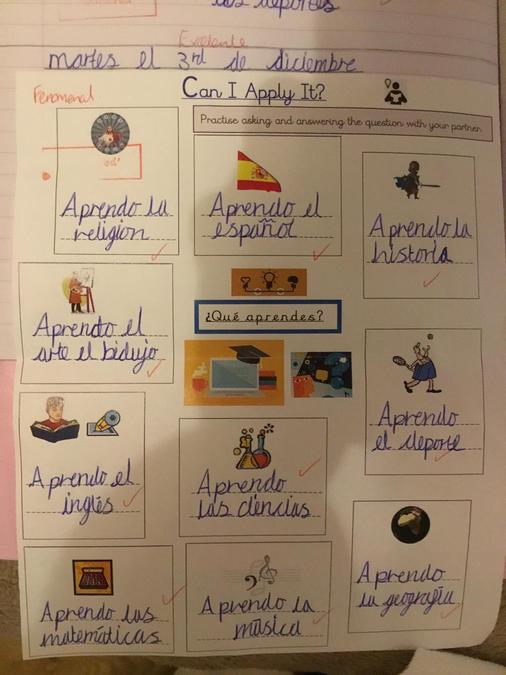
Then we practised saying when we learn each subject.
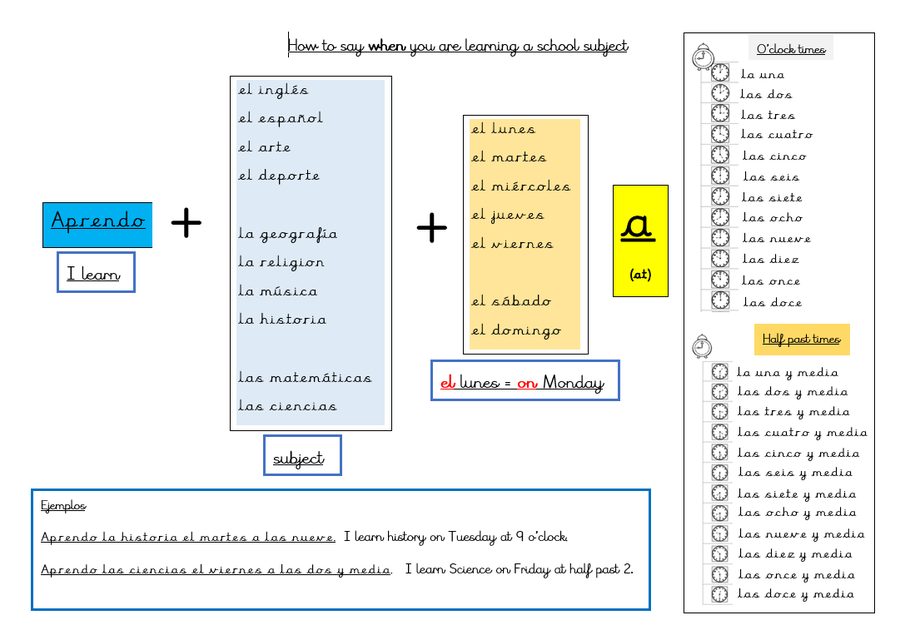
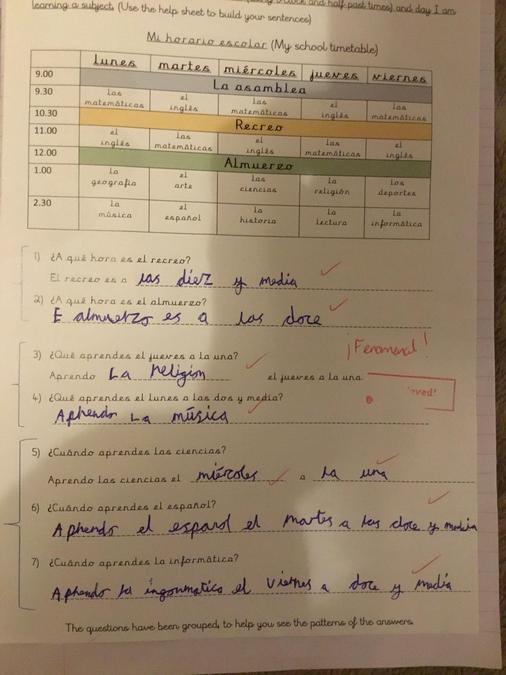
14.11.24
Today, we have been learning to say a jungle rhyme in Spanish, using all the animals and different adjectives to describe them.
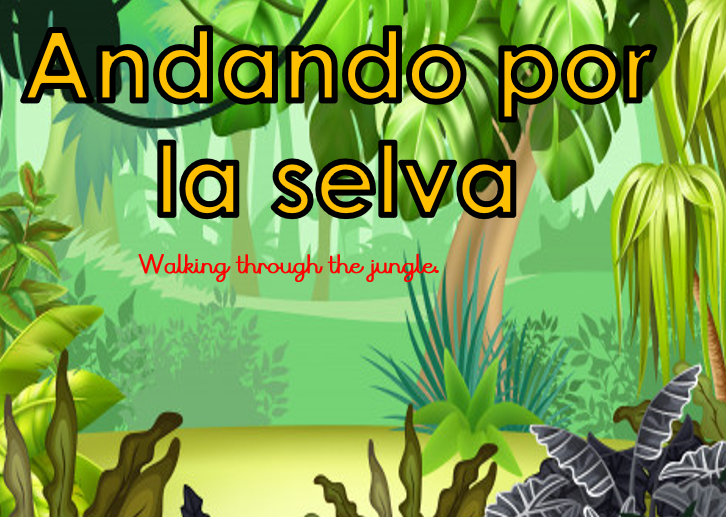
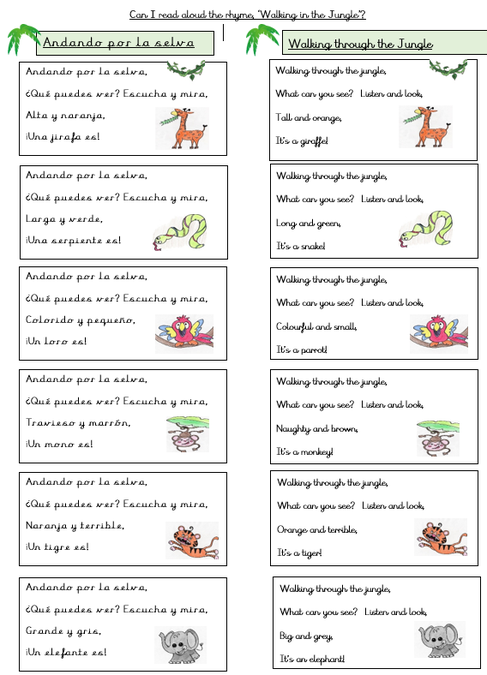
7.11.24
This week, we used adjectives and colours to describe the jungle animals. Some of the adjectives have different endings when describing feminine or masculine animals.
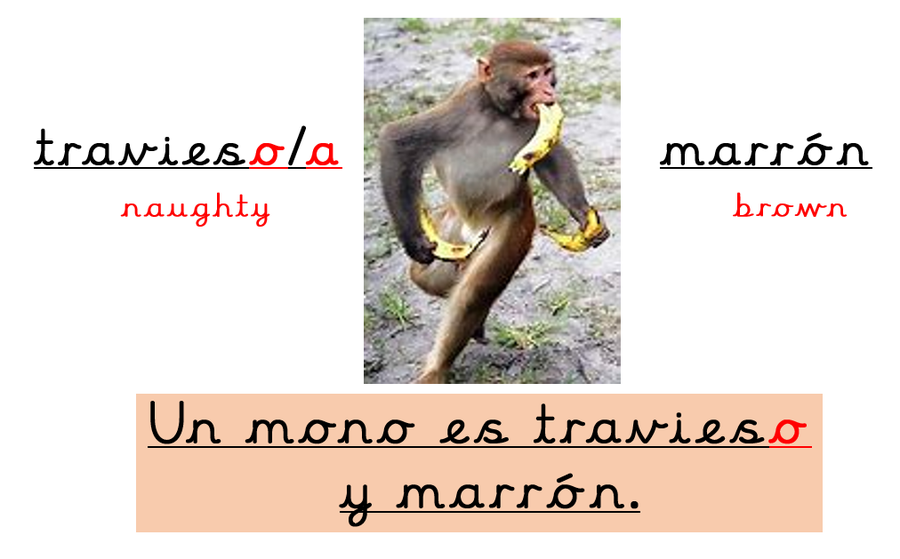
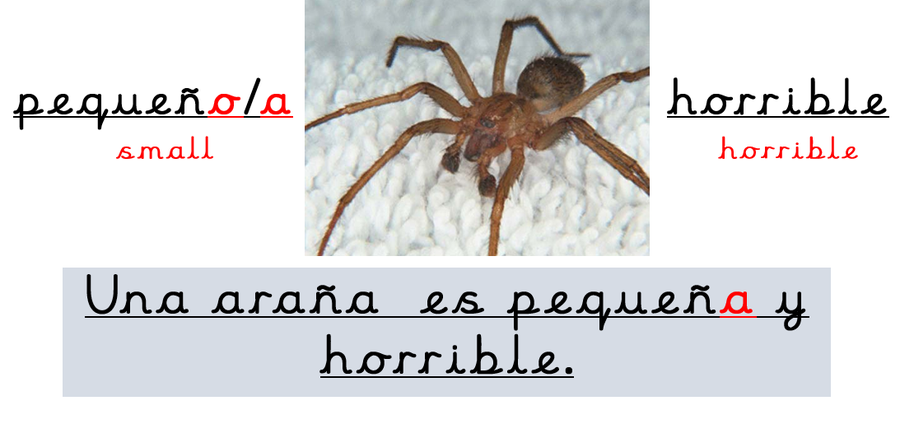
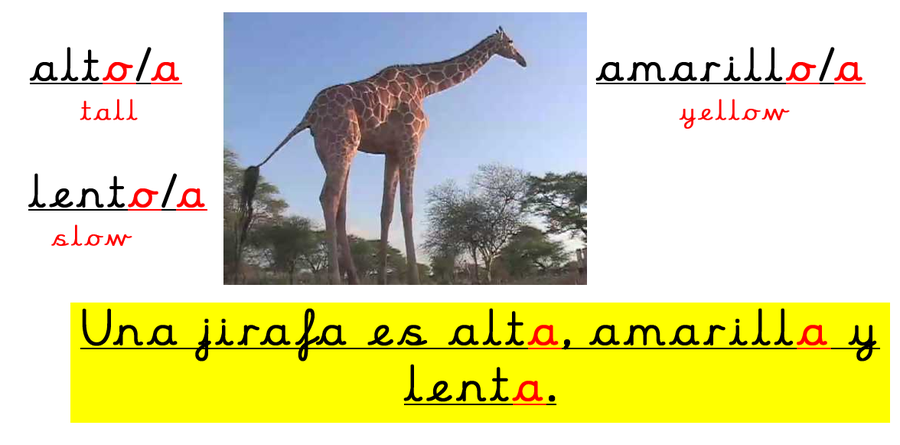
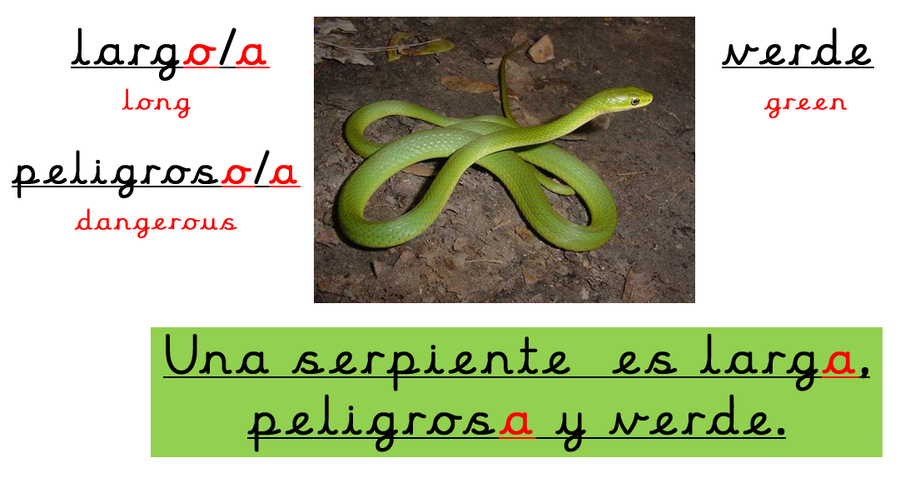

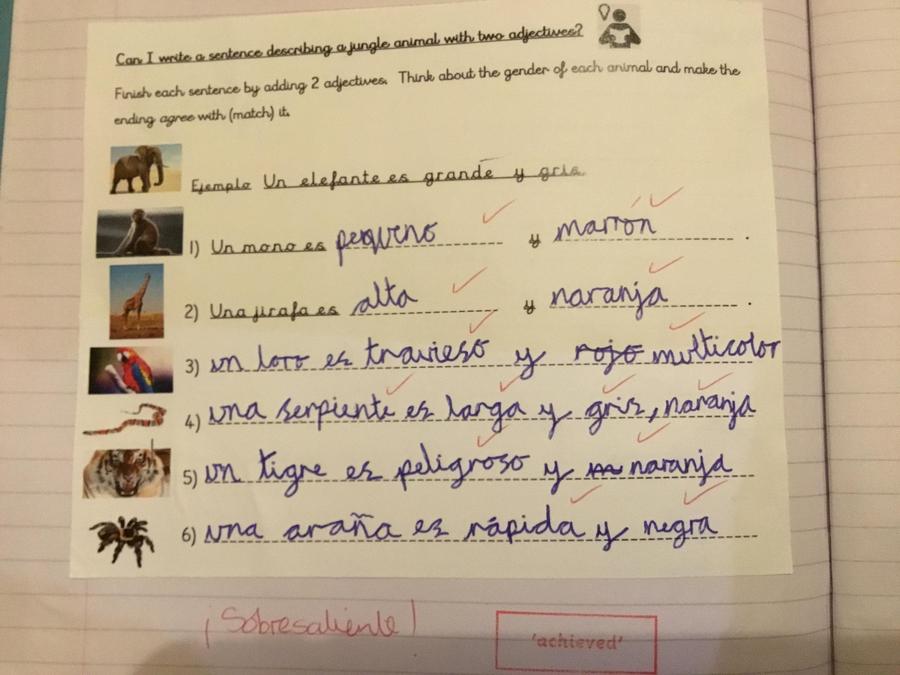
Autumn 1
3.10.24
This week, we used the bilingual dictionaries to find different adjectives to describe our jungle animals with.
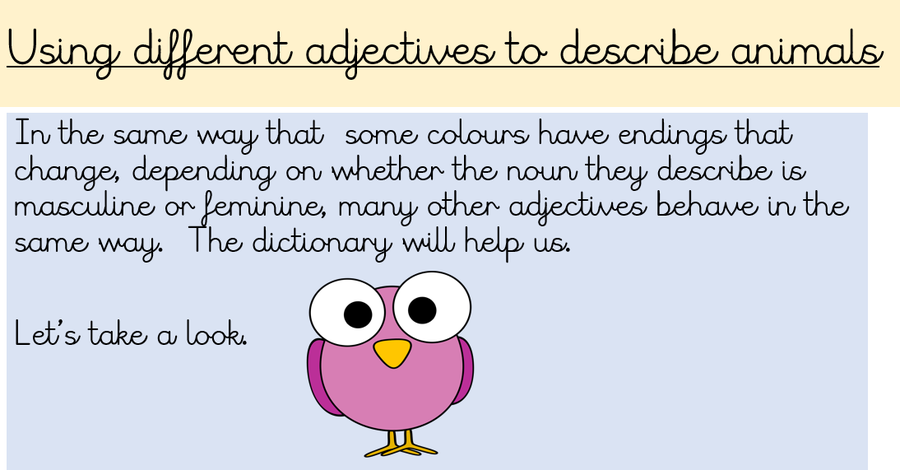
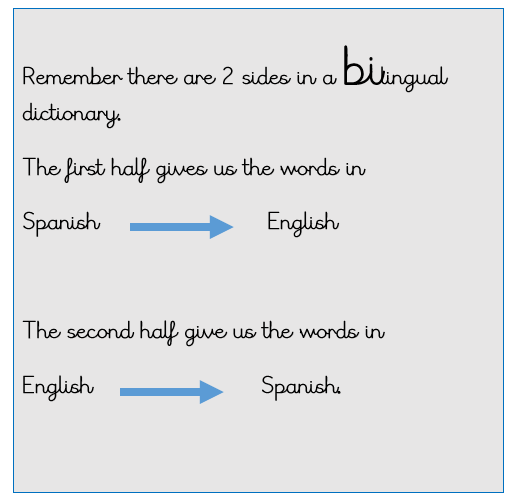

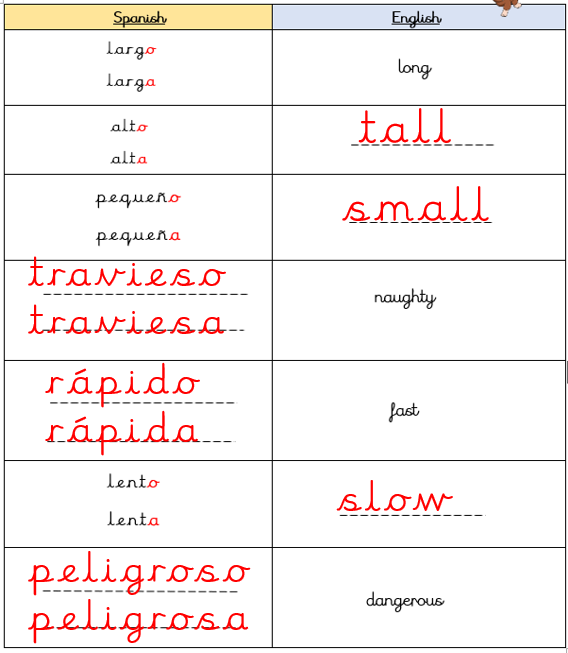
19.9.25
This week, we have been learning the names of some common jungle animals. We separated them into 2 groups - masculine and feminine nouns.
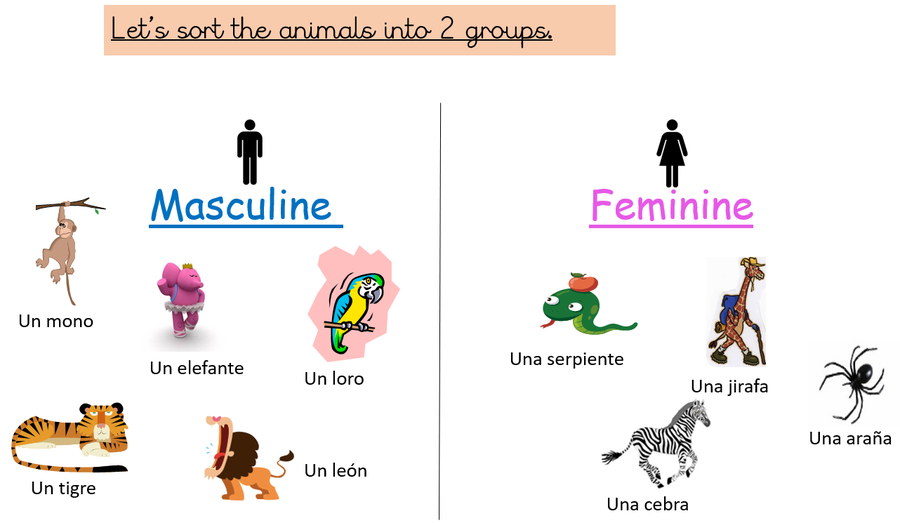
Then, we described each animal with a colour, making the colour (adjective) agrees with the noun.
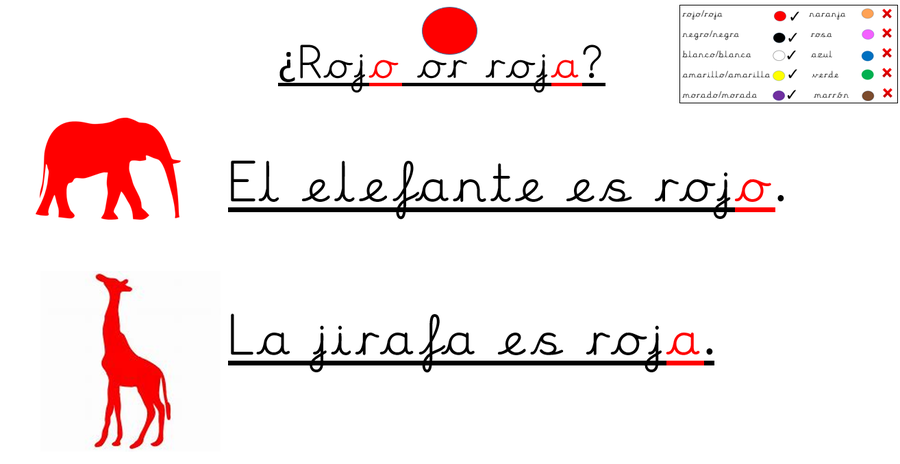
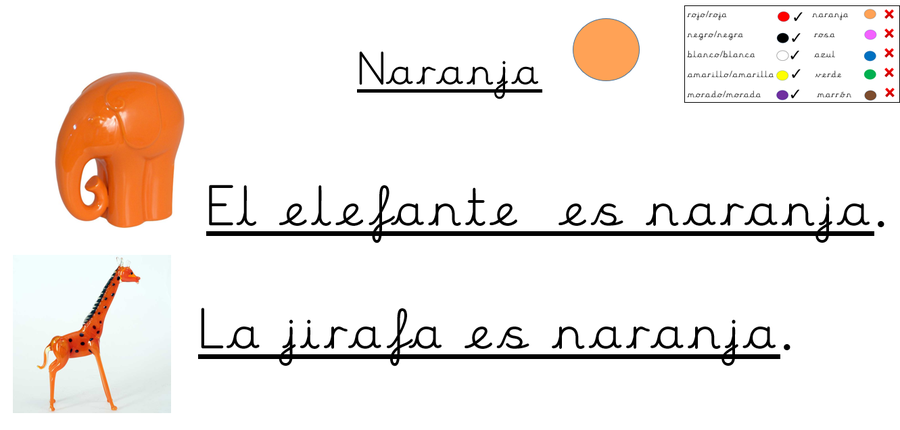
12.9.25
This week, we learnt how to tell the time, to half past the hour. We practised with a friend.
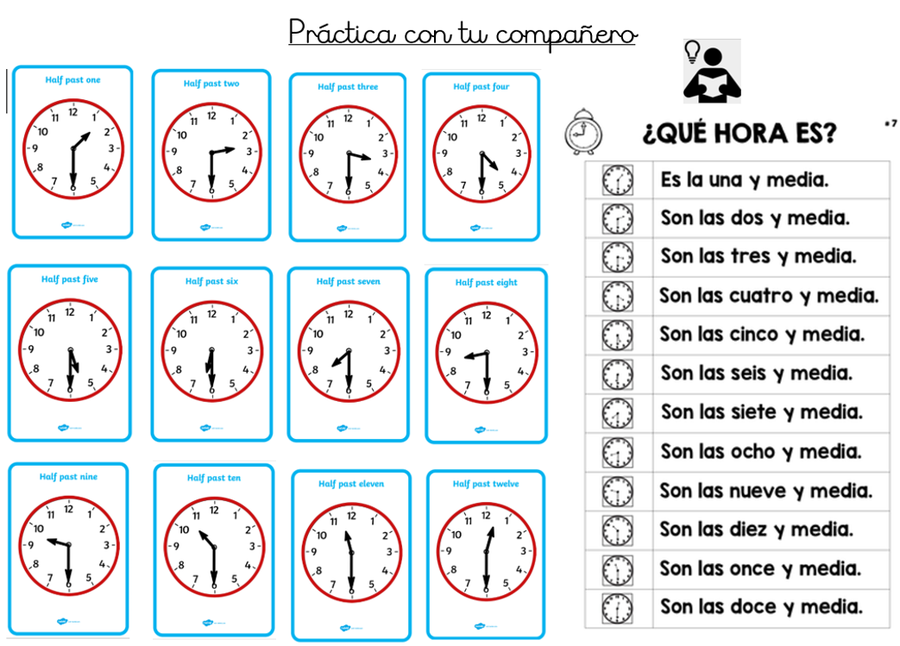

Telling the time
5.9.24
Today, we learnt to count from 30 to 50 in Spanish.
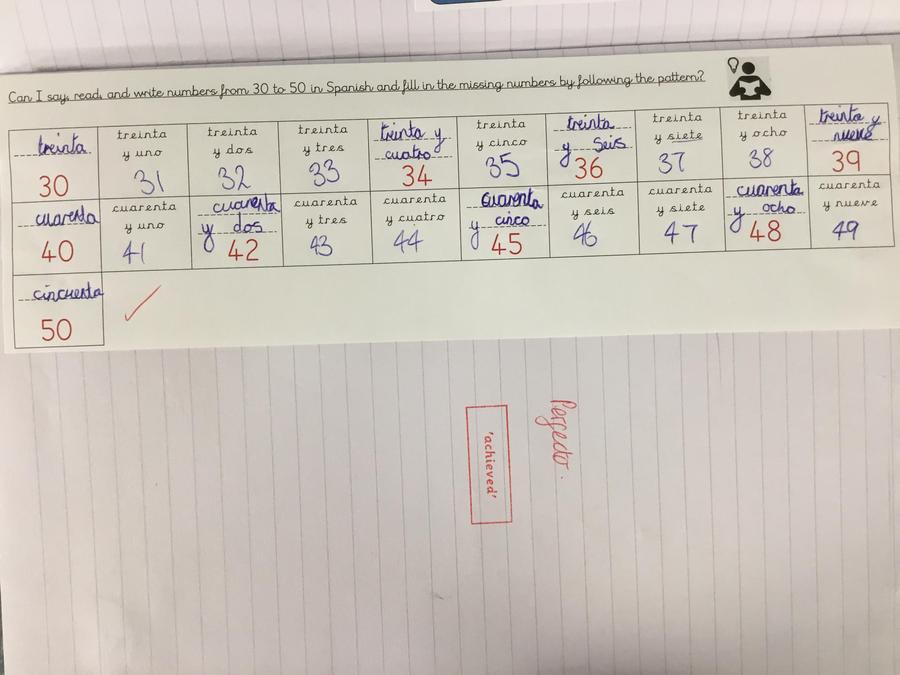
Then we learnt how to count in multiples of 10 up to 100.
